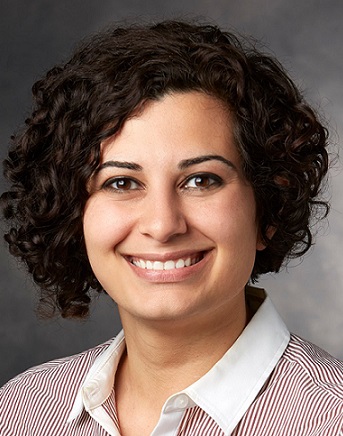
Duaa Al-Rawi, MD, PhD
Memorial Sloan Kettering Cancer Center
Investigating the Role of Chromosomal Instability in Ovarian Cancer Initiation
Our talented researchers come from top institutions around the world and are united in their passion to improve the lives – and outcomes – of patients with ovarian and related gynecologic cancers.

OCRA’s newest grantees are leveraging advanced tools like Artificial Intelligence (AI) to tackle urgent challenges such as recurrence, treatment resistance, and access to care — while also pursuing effective immunotherapy strategies and identifying new biomarkers and therapeutic targets.
More 2026 grantees will be announced soon.

Memorial Sloan Kettering Cancer Center
Investigating the Role of Chromosomal Instability in Ovarian Cancer Initiation

Wake Forest University Health Sciences
Leveraging Immunogenic Subtypes of High-Grade Serous Ovarian Cancer for Improved Therapy Selection

Icahn School of Medicine at Mount Sinai
Machine learning models to predict refractory responses in ovarian cancer
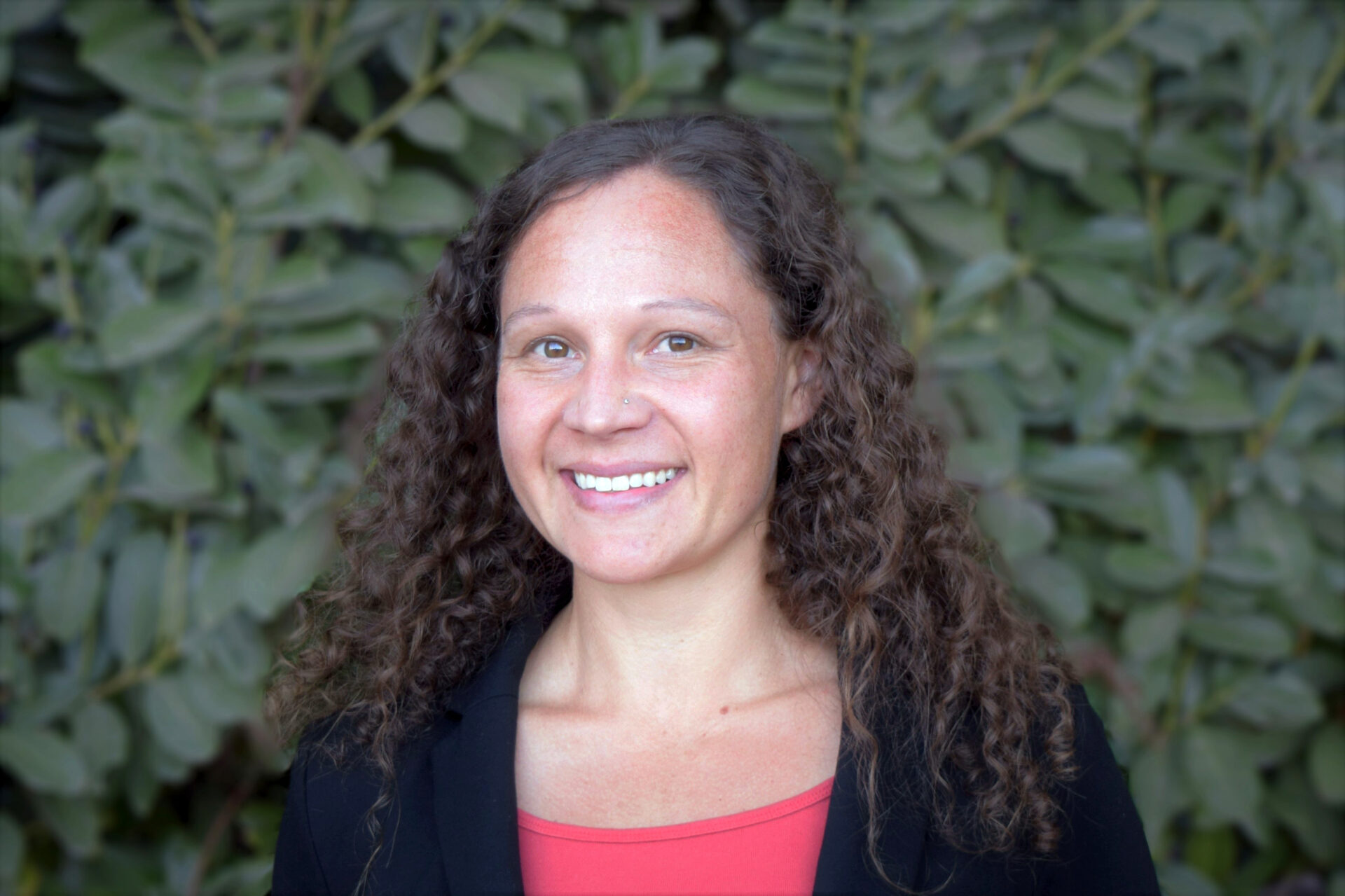
Emory University
Role of neighborhood socio-structural factors on the tumor epigenome and racial disparities

The University of North Carolina at Chapel Hill
Assessing Inequities in Ovarian Cancer Access and Quality Using Big Data

University of New Mexico
Ovarian Cancer Risk Reduction through AI-Driven Prediction of Variant Pathogenicity

Sanford Burnham Prebys Medical Discovery Institute
Removing fibrotic barriers to improve immunotherapy responses in ovarian cancer

Massachusetts General Hospital
Learning spatial determinants of treatment response in ovarian cancer

Icahn School of Medicine at Mount Sinai
Targeting ovarian cancer control of the tumor microenvironment to enhance anti-tumor immunity

Health Research, Inc. and Roswell Park Cancer Institute
First-in-human Folate Receptor alpha-targeted BiTE-secreting T cells ovarian cancer clinical trial
Launched in 2004, this grant provides funds for research projects that involve several investigators within one institution or collaborations between groups in multiple institutions. Support of $300,000 annually for three years, for a total of $900,000, will be awarded to the institution where the recipient will conduct the research.

University of Colorado – Denver
A Machine Learning Approach to Chemotherapy-induced Remodeling of the Tumor

Duke University
The Role of Ferroptosis in the Metastatic Ovarian Cancer

The George Washington University
Combining epigenetic therapy and multi-antigen-specific T cells to treat ovarian cancer

Columbia University
Defining The Impact of DNA Repair Variants on Immune-Based Therapy of Ovarian Cancer at Scale

Cedars-Sinai Medical Center
iPSC Modeling of Ovarian Cancers in BRCA1 and 2 Mutation Carriers

University of Oklahoma Health Sciences Center
Development of a Novel DCLK1-Targeted CAR-T to Prevent Ovarian Cancer Metastatic Recurrence

Ohio State University
Identification of Early Molecular Events and a Novel Biomarker for High-Grade Serous Ovarian Cancer

The Regents of the University of Minnesota – Twin Cities
Cytokine armored dual-CAR γδT cells target CD70 and CSPG4 in advanced epithelial ovarian cancer

Harvard T.H. Chan School of Public Health
Targeting Apoptotic Vulnerabilities in Ovarian Cancer
Alberto Ciccia, PhD, Columbia University
Defining the impact of DNA repair variants on immune-based therapy of ovarian cancer at scale
Selvendiran Karuppaiyah, PhD, The Ohio State University
Identification of early molecular events and a novel biomarker for high grade serous ovarian cancer
Bethany Hannafon, PhD, University of Oklahoma Health Sciences Center
Development of a novel DCLK1-targeted CAR-T to prevent ovarian cancer metastatic recurrence
Kristopher Sarosiek, PhD, Harvard T.H. Chan School of Public Health
Targeting Apoptotic Vulnerabilities in Ovarian Cancer
Simon Gayther, PhD, Cedars-Sinai Medical Center
iPSC Modeling of Ovarian Cancers in BRCA1 and 2 Mutation Carriers
Jen-Tsan Chi, MD, PhD, Duke University
The Role of Ferroptosis in the Metastatic Ovarian Cancer
Ronald Buckanovich, MD, PhD, Magee-Womens Research Institute
Role of Macrophage-secreted BIGH3 in Tumor Immunity
Benjamin Bitler, PhD, University of Colorado – Denver
A Machine Learning Approach to Chemotherapy-induced Remodeling of the Tumor
Martin Cannon, PhD, University of Arkansas for Medical Sciences
Understanding and Targeting Myeloid Populations in Ovarian Cancer
Ivan Ahel, PhD, University of Oxford
Exploiting PARP-Modulating Enzymes in Ovarian Cancer Therapy
Andrew K. Godwin, PhD, University of Kansas Medical Center Research Institute
Tumor-Derived Extracellular Vesicle in Ovarian Cancer
Sohrab Shah, PhD, Memorial Sloan Kettering Cancer Center
Profiling Co-Evolution of Ovarian Cancer and its Immune Microenvironment
Ugo Cavallaro, PhD, Fondazione Istituto Europeo di Oncologia e Centro
Cardiologico Fondazione Monzino
Interplay Between Ovarian Cancer Stem Cells and the Tumor Microenvironment
Sandra Orsulic, PhD, UCLA School of Medicine
Co-Evolution of Epithelial Ovarian Cancer and Tumor Stroma
Ronald Buckanovich, MD, PhD, Magee-Womens Research Institute
Targeting Tumor Desmoplasia to Enhance Immunotherapy
Rugang Zhang, PhD, The Wistar Institute
Developing Epigenetic Therapies for Ovarian Cancer
Gordon Mills, MD, PhD, MD Anderson Cancer Center
Rational Combination Therapy in Ovarian Cancer
David Sabatini, MD, PhD, Whitehead Institute for Biomedical Research
A Personalized Approach to Identify and Target Ovarian Cancer Liabilities
Tyler Curiel, MD, University of Texas Health Science Center at San Antonio
Rational Design of Effective Multi-modal Ovarian Cancer Immunotherapy
Ronen Marmorstein, PhD, University of Pennsylvania
Chromatin Regulatory Mechanisms in Ovarian Cancer
Kenneth Nephew, PhD, Indiana University
Epigenetic Vulnerabilities of Ovarian Cancer Stem Cells
Ie-Ming Shih, MD, PhD, Johns Hopkins University School of Medicine
Development of Targeted Therapies for Recurrent Ovarian Cancer
Beth Y. Karlan, MD, Cedars-Sinai Medical Center
Co-Evolution of Epithelial Ovarian Cancer and Tumor Stroma
David Spriggs, MD, Memorial Sloan Kettering Cancer Center
Novel Approaches to Immunotherapy
Anna Lokshin, PhD, University of Pittsburgh
Microenvironmental Control of Premalignant Lesions in Ovarian Cancer
Alexander Nikitin, MD, PhD, Cornell University
Cancer-prone Stem Cell Niches in Ovarian and Tubal Epithelia
Michael Yaffe, MD, PhD, Massachusetts Institute of Technology
Using Functional Genetics and Nanomedicine for Ovarian Cancer Treatments
Tyler Curiel, MD, University of Texas Health Science Center at San Antonio
Rational Design of Effective Multi-modal Ovarian Cancer Immunotherapy
Ronen Marmorstein, PhD, University of Pennsylvania
Chromatin Regulatory Mechanisms in Ovarian Cancer
Ursula Matulonis, MD, Dana Farber Cancer Institute
Rational Combinations of Novel Biologic Agents for Ovarian Cancer Therapy
Simon Gayther, PhD, University of Southern California
Functional Analysis of Genetic Susceptibility Loci to Identify Biomarkers and Candidate Genes Associated with Ovarian Cancer Initiation, Progression and Outcome
Anil K. Sood, MD, MD Anderson Cancer Center
Power of Platelets in Ovarian Cancer
Elizabeth Swisher, MD, University of Washington
The FA-BRCA Pathway and Response to Platinum and PARP Inhibitors in Ovarian, Tubal and Peritoneal Carcinomas
George Coukos, M.D., Ph.D., University of Pennsylvania
Engineering Immune Cells to Better Recognize and Kill Ovarian Cancer
Ernst Lengyel, MD, PhD, University of Chicago
Reprogramming of Ovarian Cancer Microenvironments by miRNAs
Martin Matthew Matzuk, MD, PhD, Baylor College of Medicine
Diagnostic Strategies for Detection of Ovarian Cancer
Kenneth Nephew, PhD, Indiana University
A New Approach to Treating Recurrent Ovarian Cancer and Newly Diagnosed Disease
Santo Nicosia, MD, University South Florida
Ovarian Cancer: A Theme Based Approach Toward Identification of Novel Diagnostic and Therapeutic Targets
Weiping Zou, MD, PhD, University of Michigan – Ann Arbor
Understanding how Ovarian Cancer Stem Cells Play a Role in Disease Progression and Drug Resistance
Andrew Berchuck, MD, Duke University Medical Center
International Ovarian Cancer Association Consortium: Finding Genetic Markers of Ovarian Cancer Using Polymorphisms
Andrew K. Godwin, PhD, Fox Chase Cancer Center
Understanding the Microenvironment Where Ovarian Cancer Grows as a Target for Treatment
Anil K. Sood, MD, MD Anderson Cancer Center
Novel Treatments for Ovarian Cancer Using siRNAs
Gary Leiserowitz, MD, University of California – Davis
The Carbohydrate Components of Cellular Molecules: A New Way to Diagnose Ovarian Cancer?
George Coukos, M.D., Ph.D., University of Pennsylvania
Engineering T Cells to Augment Natural Immunity to Ovarian Cancer
Robert C. Bast Jr., MD, MD Anderson Cancer Center
Autophagy and Ovarian Cancer
Kunle Odunsi, MD, PhD, Roswell Park Cancer Institute
Enhancing Immunity to Ovarian Cancer Tumors
Martin Matthew Matzuk, MD, PhD, Baylor College of Medicine
MicroRNA’s as Diagnostic and Therapeutic Targets in Ovarian Cancer
Jonathan S. Berek, MD, MMS, Stanford University
Leading the Effort to Develop Vaccines and Immunotherapy for Ovarian Cancer
Bo Rueda, PhD, Massachusetts General Hospital
Understanding the Key Molecular Pathways that Drive Ovarian Cancer
Peter Laird, PhD, University of Southern California/Keck Medical School
Molecular Changes to DNA that Contribute to Ovarian Cancer
Ronny I. Drapkin, MD, PhD, Dana Farber Cancer Institute
Ovarian Cancer Biomarkers: Identification, Validation and Assessment of Biological Function
Anil K. Sood, MD, MD Anderson Cancer Center
Novel siRNA Based Therapeutic Approaches for Ovarian Carcinoma
Andrew K. Godwin, PhD, Fox Chase Cancer Center
Therapeutic Targeting of the Tumor Microenvironment in Ovarian Cancer
Andrew Berchuck, MD, Duke University Medical Center
International Ovarian Cancer Association Consortium
Launched in 2022, this grant is the result of a unique partnership between OCRA and Microsoft’s AI for Good Lab, a philanthropic program at Microsoft. This collaboration will help OCRA accelerate ovarian cancer research by harnessing the power of data science and Artificial Intelligence (AI), potentially leading to new insights into the disease. The grant will provide funds for ovarian cancer and/or related gynecologic cancers research projects that may involve several investigators within one institution or collaborations between groups in multiple institutions. Support of $300,000 annually for three years, for a total of $900,000, will be awarded to the institution where the recipient will conduct the research in addition to in-kind support from Microsoft.

Memorial Sloan Kettering Cancer Center
Perception-Based Detection of an Ovarian Cancer Disease Fingerprint
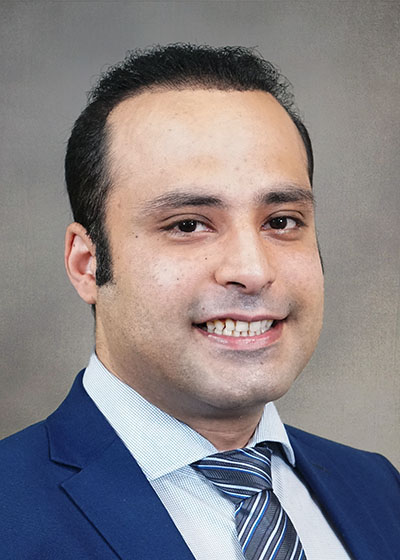
San Jose State University
Employing AI to Predict Clinical Outcomes in Ovarian Cancer

Boston Children's Hospital
Machine learning based approaches to predict and overcome treatment resistance in ovarian cancer

MD Anderson Cancer Center
AI-Guided Single-Cell Transfer Learning Model to Predict Precision Medicine in Ovarian Cancer
Rugang Zhang, PhD, MD Anderson Cancer Center
AI-guided single-cell transfer learning model to predict precision medicine in ovarian cancer
Daniel Heller, PhD, Memorial Sloan Kettering Cancer Center
Perception-Based Detection of an Ovarian Cancer Disease Fingerprint
Shayan Shams, PhD, San Jose State University
Employing AI to Predict Clinical Outcomes in Ovarian Cancer
Sohrab Shah, PhD, Memorial Sloan Kettering Cancer Center
Inferring Mutational Processes and Patient Stratification From Standard-of-Care Clinical Imaging
The Early Career Investigator Grant (formerly the Liz Tilberis Early Career Award) is for junior faculty (Assistant Professor level) with a strong commitment to an investigative career in ovarian cancer or related gynecologic cancer research. Support of $150,000 annually for three years, for a total of $450,000, will be awarded to the institution where the recipient will conduct the research.

Fred Hutchinson Cancer Research Center
Synthetic Lethality of the Protexin and BRCA Complexes in Ovarian Cancer

MD Anderson Cancer Center
Cancer-derived Exosomal miRNAs Modulate Ovarian Tumor Microenvironment

Jewish General Hospital
Modulating Chromatin Remodeling as a Strategy to Reverse Immune Evasion in Ovarian Cancer

The University of Chicago
Targeting Ribosomal Function to Overcome Chemoresistance in Ovarian Cancer

The Ohio State University
The Impact of Gut Microbiome and Probiotics on Chemotherapy Response in Ovarian Cancer Patients

Johns Hopkins University
Crystallized Drug, Biomaterial Delivery System for Treating Ovarian Cancer

MD Anderson Cancer Center
BRCA-deficient Ovarian Cancer and IFITM3: a New Power Couple
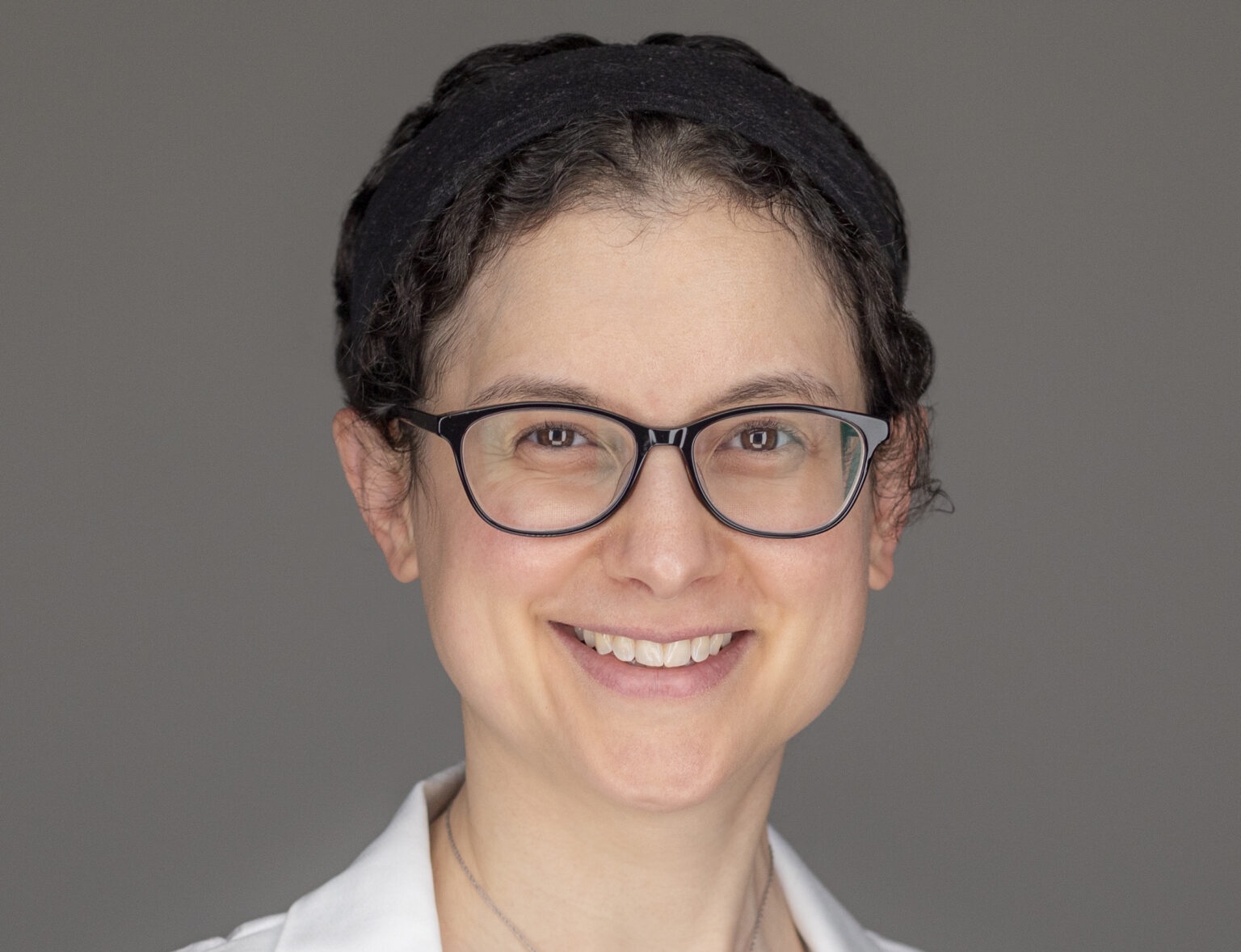
H. Lee Moffitt Cancer Center & Research Institute, Inc.
Evolutionarily informed therapies in recurrent ovarian cancer
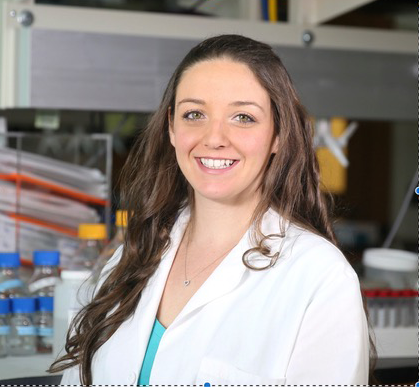
University of Pennsylvania
PARP-Targeted PET Imaging to Measure Response to PARP Inhibitor and Immunotherapy in Ovarian Cancer

Stanford University
Identifying the Cell of Origin for High-Grade Serous Carcinoma
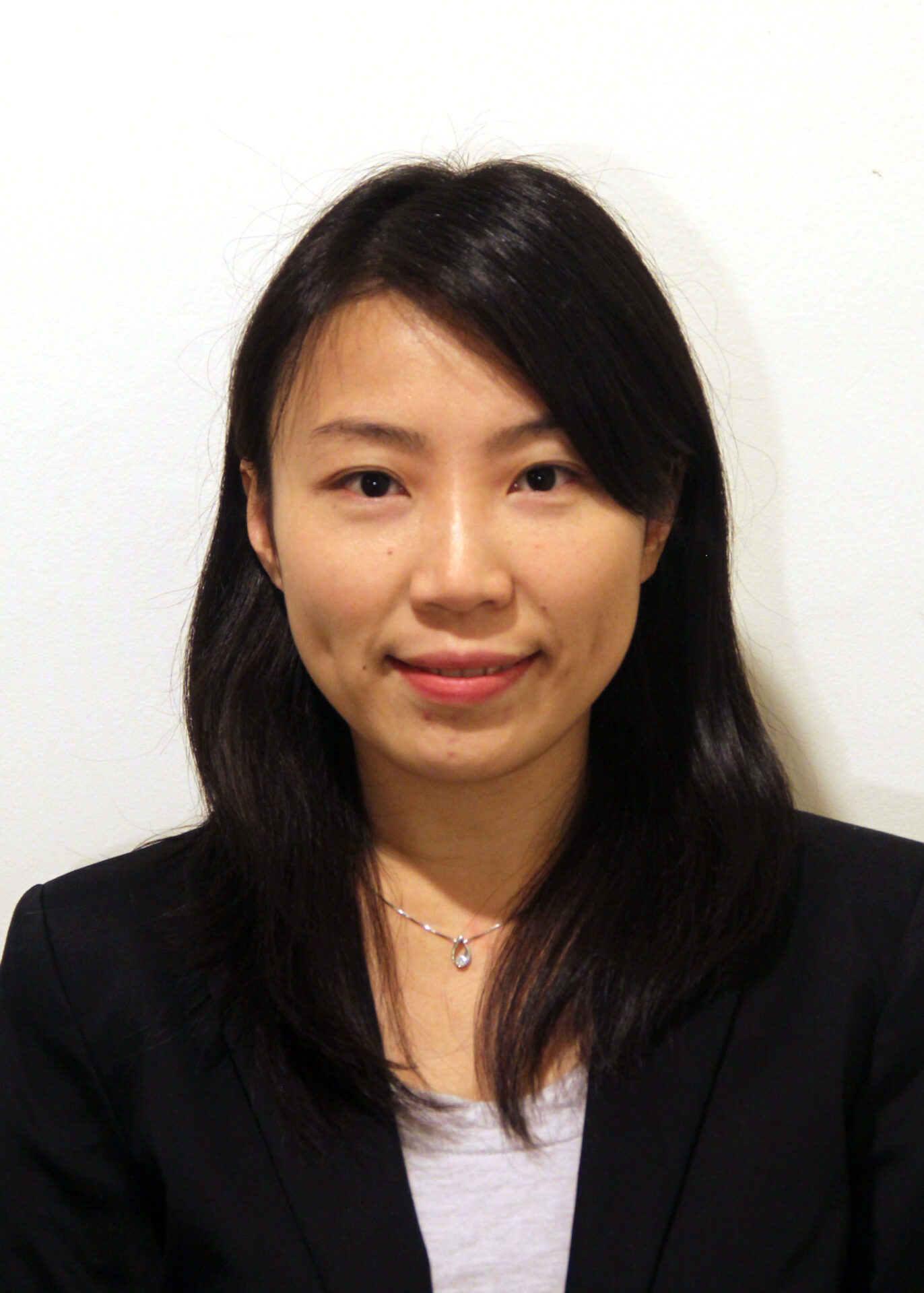
University of Pennsylvania
Targeting Chromatin Modifiers to Treat Ovarian Cancer

MD Anderson Cancer Center
Repetitive Elements as a Therapeutic Opportunity to Intercept Ovarian High-Grade Serous Carcinoma

Women & Infants Hospital of Rhode Island
The evaluation of amphiregulin as a novel immunomodulatory high grade serous ovarian cancer therapy

Washington University in St. Louis
Targeting RNF168-amplified ovarian cancer

Magee-Womens Research Institute
Targeting CD47-SIRPa Axis to Overcome Therapy Resistance in Ovarian Cancer

University of Colorado – Denver
Reprogramming the Ovarian Cancer Immune Microenvironment Via Inhibition of MDSC Recruitment

Roswell Park Cancer Institute
BiTE-secreting T cells for Adoptive T cell Therapy in Ovarian Cancer

Rutgers University
Mitochondrial Stress Impairs Protective T Cell Immunity in Ovarian Cancer

Cedars-Sinai Medical Center
Chemopreventative Targets in BRCA1 Carrier Models with P53 Lesions

University of Rochester
HE4 Directed Immunotherapy Resistance in Epithelial Ovarian Cancer

Washington University in St. Louis
Role of Chromatin on PARP Inhibitor Responses in BRCA-Mutant Ovarian Cancer
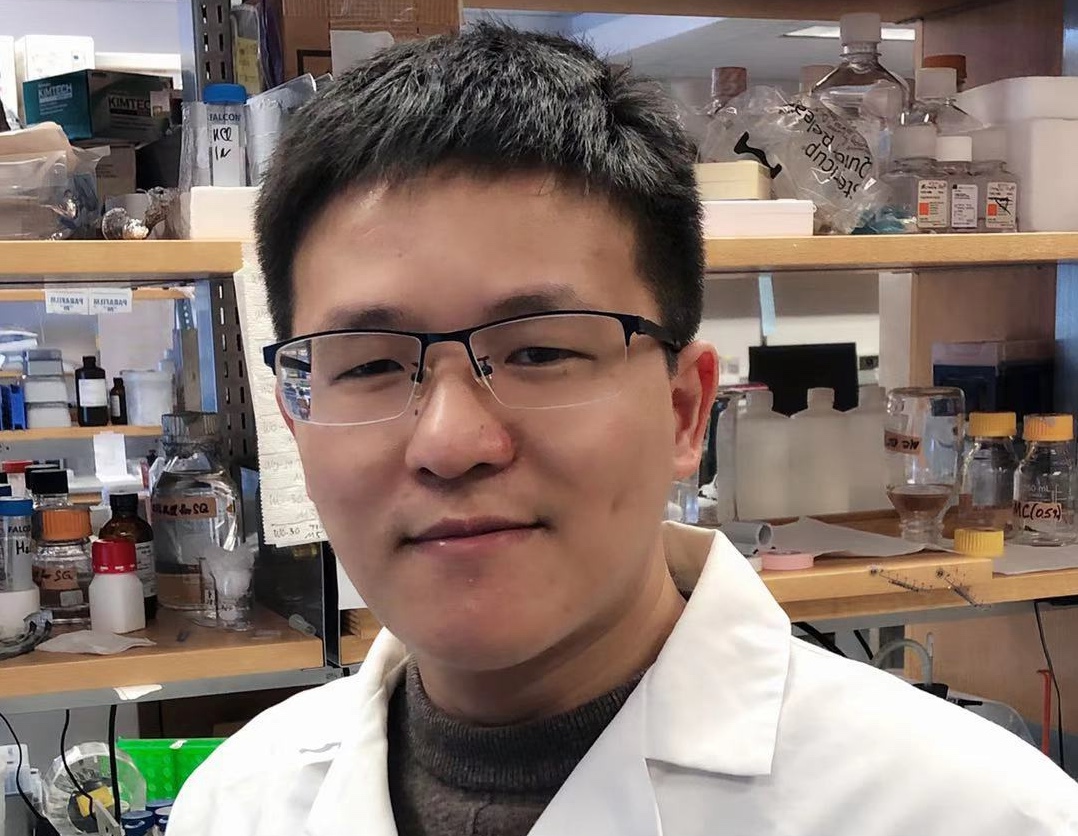
University of Pennsylvania
Strategies to Exploit Genetic Alterations in Clear-Cell Ovarian Cancer

University of British Columbia
Investigating the role of SMARCA4/2 loss in undifferentiated ovarian cancer using novel mouse models

Northwestern University
Redox Balance Regulates Stemness-Associated Gene Transcription in Ovarian Cancer
Nicole James, PhD, Women & Infants Hospital of Rhode Island
The evaluation of amphiregulin as a novel immunomodulatory high grade serous ovarian cancer therapy
Laura Chambers, DO, The Ohio State University
The Impact of Gut Microbiome and Probiotics on Chemotherapy Response in Ovarian Cancer Patients
Sridevi Challa, PhD, The University of Chicago
Targeting Ribosomal Function to Overcome Chemoresistance in Ovarian Cancer
Nicole Marjon, MD, PhD, University of Colorado – Denver
Reprograming the Ovarian Cancer Immune Microenvironment Via Inhibition of MDSC Recruitment
Sarah Gitto, PhD, University of Pennsylvania
PARP-targeted PET imaging to measure response to PARP inhibitor and immunotherapy in ovarian cancer
Melica Brodeur, MD, Jewish General Hospital
Modulating chromatin remodeling as a strategy to reverse immune evasion in ovarian cancer
Joshua Doloff, PhD, Johns Hopkins University
Crystallized drug, biomaterial delivery system for treating ovarian cancer
Charles Ishak, PhD, MD Anderson Cancer Center
Repetitive elements as a therapeutic opportunity to intercept ovarian high grade serous carcinoma
Xiaowen Hu, PhD, University of Pennsylvania
Targeting Chromatin Modifiers to Treat Ovarian Cancer
Brooke Howitt, MD, Stanford University
Identifying the Cell of Origin for High- Grade Serous Carcinoma
Priyanka Verma, PhD, Washington University in St. Louis
Role of Chromatin on PARP Inhibitor Responses in BRCA-Mutant Ovarian Cancer
Kyle Payne, PhD, Rutgers University
Mitochondrial Stress Impairs Protective T Cell Immunity in Ovarian Cancer
Haider Mahdi, MD, Magee-Womens Research Institute
Targeting CD47-SIRPa Axis to Overcome Therapy Resistance in Ovarian Cancer
Bob McGray, PhD, Roswell Park Cancer Institute
BiTE-secreting T cells for Adoptive T cell Therapy in Ovarian Cancer
Richard Adeyemi, DVM, PhD, Fred Hutchinson Cancer Research Center
Synthetic Lethality of the Protexin and BRCA Complexes in Ovarian Cancer
Livnat Jerby, Stanford University
Targeting multifactorial immune evasion mechanisms in ovarian cancer
Haineng Xu, PhD, University of Pennsylvania
Strategies to Exploit Genetic Alterations in Clear-Cell Ovarian Cancer
Jasmine Plummer, PhD, Cedars-Sinai Medical Center
Chemopreventative Targets in BRCA1 Carrier Models with P53 Lesions (Gail Baird Foundation Research Grant Recipient)
Lindsay Brubaker, MD, University of Colorado – Denver
Targeting Chromobox 2 to Overcome Macrophage-induced Immune Suppression
Sammy Ferri-Borgogno, PhD, MD Anderson Cancer Center
BRCA-deficient Ovarian Cancer and IFITM3: a New Power Couple
Maria Victoria Botuyan, PhD, Mayo Clinic Rochester
Probing How RAD18 and BARD1 Antagonize 53BP1 in HR DNA Repair
Chi Lam Au Yeung, PhD, MD Anderson Cancer Center
Cancer-derived Exosomal miRNAs Modulate Ovarian Tumor Microenvironment
Ichiko Kinjyo, MD, PhD, University of New Mexico
A Novel Mechanism for the Immunomodulatory Effects of PARP-inhibitor
Arun Kanakkanthara, PhD, Mayo Clinic
Exploiting a Metabolic Dependency of PARPinhibitor-Resistant Ovarian Cancer
Liya Ding, PhD, Dana Farber Cancer Institute
Targeting Therapeutic Resistance to PARP Inhibition in Ovarian Cancer
Sandra Cascio, PhD, Magee-Womens Research Institute
EGFL6 as a New Regulator of Myeloid Cell Expansion and Function in HGSOC
Nidhi Sahni, PhD, MD Anderson Cancer Center
Systems Approach for PARP-based Novel Combination Therapy in Ovarian Cancer
James Duncan, PhD, Fox Chase Cancer Center
Exploring PROTAC-Mediated Degradation of BRD4 in Ovarian Cancer
Mark Eckert, PhD, University of Chicago
The Fate and Function of Adipocytes in Ovarian Cancer Metastasis
Sudipto Ganguly, PhD, Johns Hopkins University
Characterizing a Novel Checkpoint Axis in High-Grade Serous Ovarian Cancer
Brooke Howitt, MD, Stanford University
Identifying the Cell of Origin for Ovarian High-Grade Serous Carcinoma
Sunila Pradeep, PhD, Medical College of Wisconsin
Epigenetic Causes of Acquired Resistance of Anti-VEGF Therapy
Boris Winterhoff, MD, University of Minnesota Twin Cities
Precision Medicine in Ovarian Cancer: Using Single Cell Analysis
Dmitriy Zamarin, MD, PhD, Memorial Sloan Kettering Cancer Center
Chromatin Remodeling and Immunotherapy in Ovarian Cancer
Min Soon Cho, PhD, MD Anderson Cancer Center
The Role of Platelet in the Regulation of Immune Response to Ovarian Cancer
Zihua Gong, MD, PhD, Cleveland Clinic
DNA Repair Pathways as Targets for Therapy-Resistant Ovarian Cancer
Xiaowen Hu, PhD, University of Pennsylvania
Targeting Chromatin Remodeling Complex to Treat Ovarian Cancer
Kate Lawrenson, PhD, Cedars-Sinai Medical Center
Elucidating the Role of SOX17 in HGSOC
Elizabeth Stover, MD, PhD, Dana Farber Cancer Institute
Targeting Anti-apoptotic Proteins BCL-XL and MCL-1 in Serous Ovarian Cancer
Takemasa Tsuji, PhD, Roswell Park Comprehensive Cancer Center
Utilization of Tumor-recognizing CD4+T Cells in Cancer Immunotherapy
Kris Wood, PhD, Duke University
Precision Targeting of Altered Mitochondrial States in Ovarian Cancer
Maria Victoria Botuyan, PhD, Mayo Clinic
Probing the Antagonistic Roles of 53BP1 and RAD18 in HR DNA Repair
Katherine Fuh, MD, PhD, Washington University in St. Louis
Inhibition of Metastasis in BRCA2-associated Ovarian Cancers
Hilary Kenny, PhD, The University of Chicago
The Role of Mesothelial Cells in Ovarian Cancer Metastasis
Chunsheng Li, PhD, University of Pennsylvania
Imaging Guided Immunotherapy Targeting CD248 for Epithelial Ovarian Cancer
Sumegha Mitra, PhD, Indiana University
UCHL1 Regulates Oncogenic Signaling in Ovarian Cancer
Jian Yuan, PhD, Mayo Clinic
The Role of BRD9-Rad51 Axis in Chemoresistance in Ovarian Cancer
Alessia Baccarini, PhD, Mount Sinai School of Medicine
Regulation of the Immune Checkpoint PD-L1 in Ovarian Cancer
Ronald Chandler, PhD, Michigan State University
Integrated Roles of Epigenetics and Cell Signaling in Ovarian Cancer
Ilana Chefetz, PhD, University of Michigan
Drugs Inducing Necroptotic Cell Death As A New Strategy for High Grade Serous Ovarian Cancer
Michael Goldberg, PhD, Dana Farber Cancer Institute
Rational Immunity to Improve Survival Following Standard-of-care Chemo
Sunila Pradeep, PhD, Medical College of Wisconsin
Epigenetic Causes of Acquired Resistance to Anti-VEGF Therapy
Boris Winterhoff, MD, University of Minnesota Twin Cities
Precision Medicine in Ovarian Cancer: Using Single Cell Analysis
Pradeep Chaluvally-Raghavan, PhD, Medical College of Wisconsin
Unexpected Role of CLDN11 cdRNA in Ovarian Cancer
Alberto Ciccia, PhD, Columbia University Medical Center
Defining the Molecular Mechanisms of BRCA1-dependent Tumor Suppression
Zihua Gong, MD, PhD, MD Anderson Cancer Center
DNA Repair Pathways as Target for Therapy-Resistant Ovarian Cancer
Hui Shen, PhD, Van Andel Research Institute
An Epigenomic Approach to Delineate Cells of Origin in Early Tumorigenesis
Alexandra Snyder Charen, MD, Memorial Sloan Kettering Cancer Center
Unmasking Ovarian Cancers to Induce Immune Control
Sherry Wu, PhD, MD Anderson Cancer Center
Re-activating Anti-tumor Immunity Using Non-coding RNAs
Sarah Adams, MD, University of New Mexico
A Combination Therapy for Hereditary Ovarian Cancer
Cesar Castro, MD, Massachusetts General Hospital
Leveraging DNA-Barcoding for Integrated Profiling of Ovarian Cancer
Daniela Dinulescu, PhD, Brigham and Women’s Hospital
Modeling Serous Ovarian Carcinoma Using Genetic Markers Specific for the Distal Fallopian Tube
Yutaka Shoji, PhD, Michigan State University
ARID1A Regulates ATAD2 in Ovarian Cancer
Takemasa Tsuji, PhD, Roswell Park Cancer Institute
Utilization of Tumor-recognizing CD4+T cells in Cancer Immunotherapy
Sarah Walker, PhD, Dana Farber Cancer Institute
Targeting Transcription Factor Networks for Ovarian Cancer Therapy
Kris Wood, PhD, Duke University
Defining New Combination Therapies for High-grade Serous Ovarian Cancer
Hiu Wing (Tony) Cheung, PhD, Medical University of South Carolina
Functional Genomics Approaches to Identify Ovarian Cancer Genes
Rachel Grisham, MD, Memorial Sloan Kettering Cancer Center
Determining the Molecular Drivers of Low-Grade Serous Ovarian Cancer
Ryan B. Jensen, PhD, Yale University
A Cellular Switch to Modulate BRCA2-mediated Tumor Progression
Selvendiran Karuppaiyah, PhD, Ohio State University
New Type of Experimental Drug for Ovarian Cancer
Barbara Stulken Norquist, MD, University of Washington
Molecular Biomarkers to Predict PARP Inhibitor Response in Ovarian Cancer
Matthias Stephan, MD, PhD, Fred Hutchinson Cancer Research Center
In vivo Programming of Ovarian Tumor-reactive T-cells Using Nanoparticles
S John Weroha, MD, PhD, Mayo Clinic
Ovarian Cancer Surrogates to Study Platinum Resistance
Maria Barbolina, PhD, University of Illinois – Chicago
Chemokine-Dependent Control of Survival in Ovarian Carcinoma
Stephanie Gaillard, MD, PhD, Duke Cancer Institute
Evaluating ERRalpha as a Novel Therapeutic Target in Ovarian Cancer
Michael Goldberg, PhD, Dana Farber Cancer Institute
siRNA Targeting Immunosuppressive and Oncogenic Pathways in Ovarian Cancer
Xin Huang, PhD, Magee-Womens Research Institute
Noval Strategy of Metabolic Targeting Ovarian Cancer: Focusing on the Tumor Hypoxia Pathway
Mythreye Karthikeyan, PhD, University of South Carolina
Investigating the TGFß Superfamily as Therapeutic Targets in Ovarian Cancer
Joyce Liu, MD, MPH, Dana Farber Cancer Institute
Investigating ErbB3 as a Novel Therapeutic Target in Ovarian Cancer
Karen Cowden Dahl, PhD, Indiana University
Investigation of ARID3B Splicing as a Novel Therapeutic Target for Ovarian Cancer
Daniela Dinulescu, PhD, Brigham and Women’s Hospital
Modeling Serous Ovarian Carcinoma Using Genetic Markers Specific for the Distal Fallopian Tube
Ivan Garcia-Bassets, PhD, University of California – San Diego
Targeting the Epigenetic Plasticity of the Platinum Response in Drug-resistant Ovarian Cancer Cells
Shannon Hawkins, MD, PhD, Baylor College of Medicine
The Function of ARID1A in the Transformation of Endometriosis to Ovarian Cancer
W. Ruprecht Wiedemeyer, PhD, Cedars-Sinai Medical Center
Ovarian Cancer Evolution After Targeted Therapy
Sarah Adams, MD, University of Pennsylvania
Development of Combination Therapy with PARP-Inhibitors and Immunomodulation for BRCA1-Epithelial Ovarian Cancer
Joanna Burdette, PhD, University of Illinois – Chicago
Identifying Early Events in Ovarian cancer Using a 3-D Model of Ovarian Tissues
Analisa DiFeo, PhD, moun, Mount Sinai School of Medicine and Case Western Reserve University
What is the Relationship Between an miRNA Molecule and Resistance to Chemotherapy?
Selvendiran Karuppaiyah, PhD, Ohio State University
Safe, Targeted, Antitumor Therapeutics (STAT3 Inhibitors) for Ovarian Cancer
Ann Klopp, MD, PhD, MD Anderson Cancer Center
Fat Cells May Be Source of Stem Cells That Promote Ovarian Cancer
Bin Zhang, MD, PhD, University of Texas Health Science Center at San Antonio
Developing Ways to Enhance the Immune System’s Ability to Fight Ovarian Cancer
Mary Zhang, MS, PhD, University South Florida
Understanding Mechanisms that Lead to Resistance to Platinum-based Treatments
Kathryn Terry, ScD, Brigham and Women’s Hospital
The Role of Genetics and Environment on Telomere Length in Ovarian Cancer
Lin Zhang, MD, University of Pennsylvania
MicroRNAs, PI-3 kinase, and Ovarian Cancer Stem Cell Differentiation
Anika Agarwal, MD, MPhil, Tufts Medical Center
Characterizing a Key Biological Pathway in the Ovarian Cancer Microenvironment
Ronald Buckanovich, MD, PhD, University of Pennsylvania
Tumor Blood Vessels in Ovarian Cancer Development, Diagnosis and for Treatment
Jose Conejo-Garcia, MD, PhD, The Wistar Institute
Reprogramming Immune Cells to Treat Ovarian Cancer
Ernst Lengyel, MD, PhD, University of Chicago
Understanding the Molecular Biology of Metastasis in Ovarian Cancer
Monique Spillman, MD, PhD, University of Colorado – Denver
Determining the Role of Estrogen in Ovarian Cancer
Rugang Zhang, PhD, Fox Chase Cancer Center
Exploiting Natural Cell Behavior to Stop Cancer Cell Growth
Deborah Altomare, PhD, University of Central Florida
Clarifying the Molecules Involves in Ovarian Cancer Growth and Progression
Stephen L. Rose, MD, University of Wisconsin-Madison Medical School
Studying the Molecules Involved in Ovarian Cancer Development
Lin Zhang, MD, University of Pennsylvania
The Role of PIK3CA in Epithelial Ovarian Cancer
Kathryn Terry, ScD, Brigham and Women’s Hospital
Telomeres and Telomerase in Relation to Ovarian Cancer Risk
Douglas A. Levine, MD, Memorial Sloan Kettering Cancer Center
Method to Determine if a Male Hormone, Naturally Present in Woman, Affects the Risk of Developing Ovarian Cancer
Heidi Gray, MD, University of Washington
Using Antibodies to Detect Early Ovarian Cancer
Denise C. Connolly, PhD, Fox Chase Cancer Center
Developing Mouse Models of Ovarian Cancer
Andrew Li, MD, Cedars-Sinai Medical Center
Testing Medications for Other Conditions to Treat Ovarian Cancer
Jose Conejo-Garcia, MD, PhD, Dartmouth Medical School
Vascular Leukocytes as novel anti-tumor therapeutic targets
Jeremy Chien, PhD, Mayo Clinic
How Cell Shape Changes Lead to Metastasis in Ovarian Cancer
Ernst Lengyel, MD, PhD, University of Chicago
Role and Regulation of Hepatocyte Growth Factor and c-Met in Ovarian Cancer
Oliver Dorigo, MD, PhD, University of California – Los Angeles
Phenotypic and Molecular Effects if Phosphoinositide 3-Kinase (PI3 Kinase)/Akt Pathway Activation in Mouse Ovary Using Conditional Deletion of Tumor Suppressor Gene PTEN
Ronald Buckanovich, MD, PhD, University of Michigan
Identification and Validation of Clinically Relevant Targets in Ovarian Tumore Vasculature
Lin Zhang, MD, University of Pennsylvania
Transgenic Approaches to Study Ovarian Cancer Prevention
Susan K. Murphy, PhD, Duke University Medical Center
How Chemical Alterations to the DNA-but not its Sequence-May Play a Role in Ovarian Cancer
Douglas A. Levine, MD, Memorial Sloan Kettering Cancer Center
Novel Approaches to the Androgen Pathway and Genetic Predisposition to Ovarian Cancer
Denise C. Connolly, PhD, Mayo Clinic
How Cell Shape Changes Lea to Metastasis in Ovarian Cancer
Jonathan Lancaster, MD, Moffitt Cancer Center and Research Institute
Defining Genetic Pathways that Underlie Ovarian Carcinogenesis Using Microarray Expressoin Analysis
David E. Cohn, MD, Ohio State University
Targeting Tumor Blood Vessel Growth Factors with Antibodies as a New Ovarian Cancer Treatment
Rebecca Liu, MD, University of Michigan
Dysfunctional Apoptosome Activation in Ovarian Cancer: Implications for Pathogenesis, Prognosis, and Chemoresistance
Kimberly Kalli, PhD, Mayo Clinic
Functional Significance of Insulin Receptors in Epithelial Ovarian Cancer: Therapeutic Implications
Christina Bandera, MD, Dana Farber Cancer Institute
The Molecular Basis of Recurrent Ovarian Cancer and Primary Peritoneal Cancer
Karen H. Lu, MD, MD Anderson Cancer Center
Understanding the Molecular Differences in Histologic Grades of Ovarian Cancer: Implications for Discovering New Prognostic Markers
Christos Patriotis, PhD, Fox Chase Cancer Center
Molecular Genetic Mechanisms of Ovarian Oncogenesis
Robin Farias-Eisner, MD, PhD, UCLA School of Medicine
O-glycosylation: a Molecular Mechanism for Transciptional Regulation, Cellular Transformation and Nitric Oxide (NO) Mediated Tumoricidal Activity
The Mentored Investigator Grant (formerly the Ann and Sol Schreiber Mentored Investigator Award) provides funding for trainees (postdoctoral fellows or clinical fellows) working under the supervision of a mentor who is a recognized leader in ovarian cancer research. Applicants must have an MD or a PhD degree. The grant provides a total of $100,000 to be used over one or two years and will encourage the recipient’s research career in the field of ovarian cancer and related gynecologic cancers.

Memorial Sloan Kettering Cancer Center
Investigating the Role of Chromosomal Instability in Ovarian Cancer Initiation

Washington University in St. Louis
Targeting an epigenetic enzyme to enhance chemotherapy response in high-grade serous ovarian cancers

University of California – Los Angeles
Perioperative Nanotherapy for Ovarian Cancer

The Board of Trustees of the Leland Stanford Junior University
Targeting SPP1 in the TME as a therapeutic strategy to chemosensitize ovarian tumors
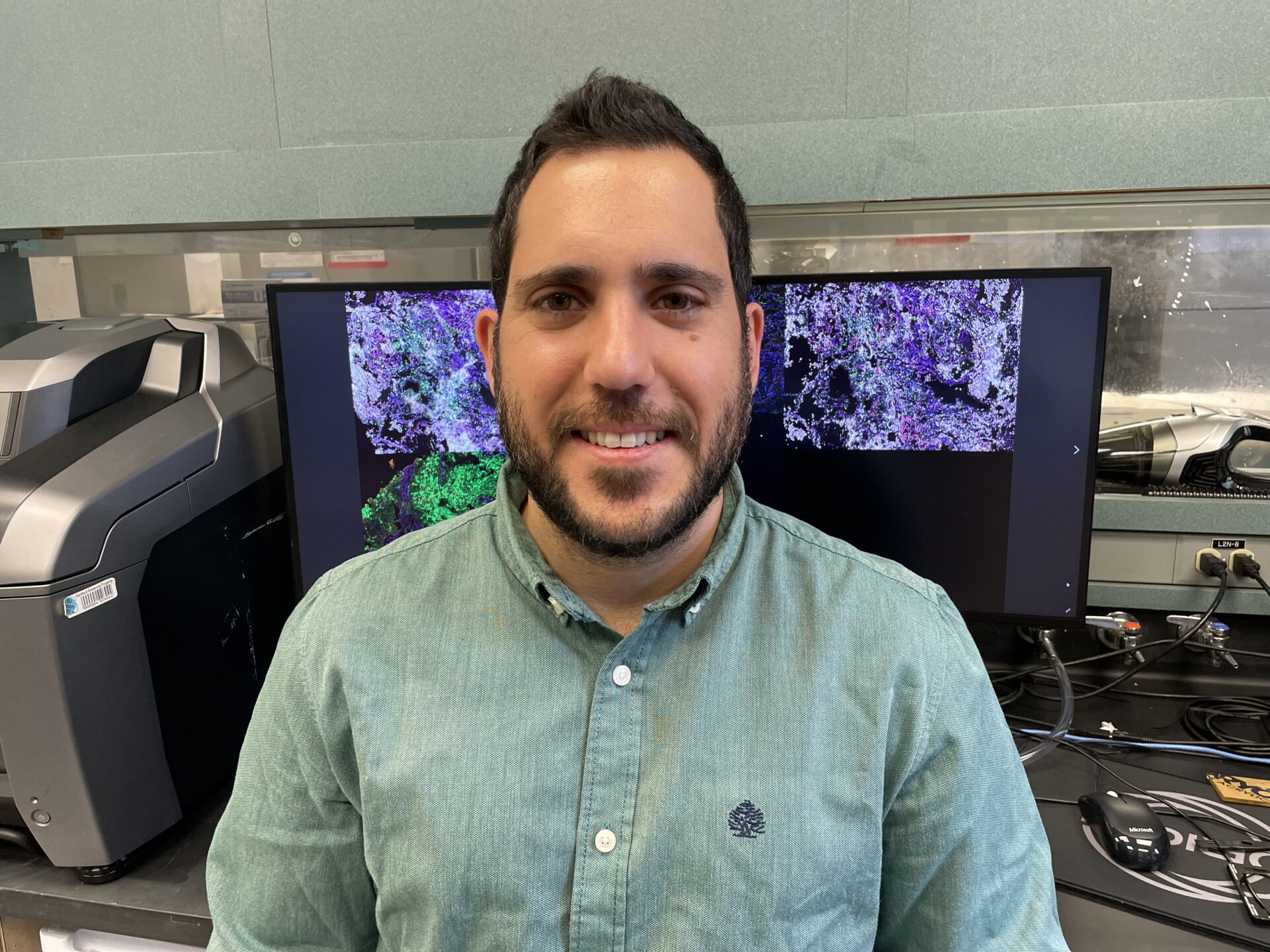
Stanford University
Mapping the Spatial Proteomic Landscape of Ovarian Tumors

Washington University in St. Louis
Examining the Role of Cancer-Associated Mesothelial Cells in Ovarian Cancer Metastasis

Cedars-Sinai Medical Center
Charting Inflammasome-Driven Immune Infiltration in Homologous rRecombination-Deficient HGSOC

Northwestern University
CD74 Mediates the Interaction between Ovarian Cancer Cells and the High Fat Metastatic Niche

The University of Sydney
Equitable access to BRCA testing: an Australian national data linkage study.

Medical College of Wisconsin
Exosome Loaded eIF4A1 Dependent Translational Reprogramming in Macrophages

The University of Texas MD Anderson Cancer Center
Targeting the acidic tumor microenvironment to improve PARP inhibitor efficacy in ovarian cancer

Dana Farber Cancer Institute
Expanding the Antigen Landscape in High Grade Serous Ovarian Cancer

Medical College of Wisconsin
Unexplored Role of Specific Subpopulation B Cells in the Ovarian Cancer Microenvironment
Martins Ayoola-Adeola, MD, University of California – Los Angeles
Perioperative Nanotherapy for Ovarian Cancer
Whitney Grither, MD, PhD, Washington University in St. Louis
Examining the role of cancer-associated mesothelial cells in ovarian cancer metastasis
Mona Singh, PhD, Medical College of Wisconsin
Unexplored role of specific subpopulation B cells in the ovarian cancer microenvironment
MacLean Sellars, MD, Dana Farber Cancer Institute
Expanding the Antigen Landscape in High Grade Serous Ovarian Cancer
Chae Young Han, PhD, MD Anderson Cancer Center
Detection of CA125-Negative Persistent and Recurrent Ovarian Cancer
Apoorva Uboveja, PhD, University of Pittsburgh
A Metabolic-Epigenetic Switch Affects DNA Repair Pathway Choice
Sonam Mittal, PhD, Medical College of Wisconsin
Exosome Loaded eIF4A1 Dependent Translational Reprogramming in Macrophages
Antonio Delgado-Gonzalez, PhD, Stanford University
Mapping the Spatial Proteomic Landscape of Ovarian Tumors
Joshua Eggold, PhD, University of Pennsylvania
Functional Characterization of Distinct Ovarian Cancer Macrophage Subsets
Bisiayo Fashemi, PhD, Washington University in St. Louis
Organoids to Evaluate an Epigenetic Drug Regimen for HR Proficient Ovarian
Chen Wang, PhD, MD Anderson Cancer Center
Epigenetically Targeting Ovarian Cancer Associated Mesenchymal Stem Cells
Andres Valdivia, PhD, Northwestern University
Complement Activation at the Interface Between Cancer Cells and Adipocytes
Duaa Al-Rawi, MD, PhD, Memorial Sloan Kettering Cancer Center
Examining the Early Events in Fallopian Tube Transformation
Thales Nepomuceno, PhD, Moffitt Cancer Center and Research Institute
Tackling PARPi sensitivity in HRP and HRD cells
Zelei Yang, PhD, Dana Farber Cancer Institute
Re-engaging the Anti-tumor Immune Response Against Ovarian Cancer
Imade Williams, PhD, Indiana University
Targeting MYC-HSF1 co-Amplification in High Grade Serous Ovarian Cancer
Erin Wesley, PhD, University of Minnesota Twin Cities
Impact of Cytomegalovirus and Inflammation on NK Cells in Ovarian Cancer
Amrita Salvi, PhD, The University of Illinois at Chicago
Investigating the mechanism of action of PHY34 in HGSOC
Pamela Rojas de Santiago, PhD, University of Pennsylvania
Investigating the Therapeutic Potential of CRABP2 in HGSOC
Veethika Pandey, PhD, University of Pennsylvania
Overcoming T Cell Exhaustion in Ovarian Cancer Tumor Microenvironment
Benjamin Johnson, PhD, Van Andel Research Institute
Ovarian Cancer Stem-like Cell Differentiation Trajectories in Single Cells
Patrick Innamarato, PhD, Moffitt Cancer Center and Research Institute
Determination of the Immunogenic Antigen Repertoire in Ovarian Cancer
Melica Brodeur, MD, Memorial Sloan Kettering Cancer Center
Exploiting SMARCA4 Alterations for New Therapeutics in Ovarian Cancers
Gamze Bildik Elcik, PhD, MD Anderson Cancer Center
DIRAS3 Inhibits KRAS and Sensitizes LGSOC Cells to Anti-autophagic Therapy
Anup Singh, PhD, La Jolla Institute for Immunology
Studying the Role of BRCA1 in Regulating Heterochromatin Structure and Function in Ovarian Cancer
Melanie Weigert, PhD, University of Chicago
Genome-Wide Profiling of 5-hydroxymethylcytosine on Cell-Free DNA
Anne M. van Harten, PhD, Thomas Jefferson University
Targeted MDM2 Degradation as a Novel Treatment for Ovarian Cancer
Bojana Stefanovska, PhD, University of Minnesota Twin Cities
APOBEC3B and DNA Repair as Synthetic Lethal Combinations in CCOC
Sammy Ferri-Borgogno, PhD, MD Anderson Cancer Center
Spatially-Resolved Cellular and Transcriptome Analyses of Ovarian Cancer
Sridevi Challa, PhD, UT Southwestern Medical Center
Role of Ribosomal Protein Mono(ADP-ribosyl)ation in Protein Quality Control
Benoît Bragantini, PhD, Mayo Clinic
Probing Homologous Recombination DNA Repair Factors in Chromatin by cryo-EM
Ronja Anugwom, PhD, MD Anderson Cancer Center
Determine Resistance Mechanisms to ATR Inhibition in Ovarian Cancers
Wei Zhou, PhD, The Wistar Institute
Targeting the mevalonate pathway in ARID1A-mutated ovarian cancer
Xueyang Yu, PhD, Massachusetts Institute of Technology
Macrophage Control of the Microenvironment Drives HGSOC Progression
David Chapel, MD, Brigham and Women’s Hospital
The Migratory Precursor and Serous Carcinogenesis
Yilun Deng, PhD, University of Texas Health Science Center at San Antonio
CD122-Selective IL-2 Complexes as Novel Ovarian Cancer Therapy
Elizabeth Lee, MD, Dana Farber Cancer Institute
Phase II Trial of Gemcitabine+ATR Inhibitor: Translational Studies
Jianhuang Lin, PhD, The Wistar Institute
Targeting ER Stress Pathway in CARM1-Expressing Ovarian Cancer
Duygu Ozmadenci, PhD, University of California – San Diego
Sensitizing Ovarian Cancer to Immunotherapies
Elizabeth Raupach, PhD, The Translational Genomics Research Institute
Oncogenic Consequences of Altered SWI/SNF-RNA Interactions in SCCOHT
Camilla Salvagno, PhD, Weill Medical College of Cornell University
Dissecting How ER Stress Responses Shape Ovarian Cancer Immuno-Environments
Janice Santiago, PhD, MD Anderson Cancer Center
Crizotinib Improves the Therapeutic Efficacy of Olaparib in Ovarian Cancer
Ignacio Vázquez-García, PhD, Memorial Sloan Kettering Cancer Center
Co-Evolution and Dynamics of Malignant and Immune Cells in Ovarian Cancer
Morozov Yaroslav, PhD, University of Pennsylvania
The BRCA1-A as a Determinant of Chemotherapy Response in ATM Mutated Cells
Kristin G. Anderson, PhD, Fred Hutchinson Cancer Research Center
Engineering Adoptive T Cell Therapy for Efficacy in Ovarian Cancer
Alexander Cole, PhD, Magee-Womens Research Institute
Investigating Regulators of Quiescence in Epithelial Ovarian Cancer
Sarah Gitto, PhD, University of Pennsylvania
Modeling Autologous TIL Therapy in Novel PARP Resistant PDX Model for Ovarian Cancer
Guy Katz, MD, PhD, MD Anderson Cancer Center
Therapeutic miRNA Targeting for Ovarian Cancer
Isaac Klein, MD, PhD, Dana Farber Cancer Institute
Transcriptional Regulatory Landscape of High Grade Serous Ovarian Cancer
John Krais, PhD, Fox Chase Cancer Center
Examining the Role of RNF168 in BRCA1 Mutant Ovarian Cancer
Marilyne Labrie, PhD, Oregon Health and Science University
Synergistic Lethality of PARP and P13K Pathway Inhibitors in Ovarian Cancer
Jing Li, MD, PhD, University of Michigan
ARID1A Drives Ovarian Cancer Immunotherapy
Shariska Petersen, MD, University of Kansas Medical Center Research Institute
Cyclin E and BRD4 as Markers for a New PARPi Drug Combination
Alba Rodriguez-Garcia, PhD, University of Pennsylvania
Targeting MISIIR with CAR T Cells for the Treatment of Ovarian Cancer
Elaine Stur, PhD, MD Anderson Cancer Center
Re-activating Anti-tumor Immunity Targeting PSEN1 in CAFS in Ovarian Cancer
Shuai Wu, PhD, The Wistar Institute
Synthetic Lethality for ARID1A Mutation in Ovarian Cancer
Haineng Xu, PhD, University of Pennsylvania
A Novel Targeted Therapy for Cyclin E Over Expressing Ovarian Cancers
Zvi Yaari, PhD, Memorial Sloan Kettering Cancer Center
Implantable Nanosensor for Early-Stage Detection of Ovarian Cancer
Damayanti Chakraborty, PhD, Massachusetts General Hospital
Understanding Epigenetic Regulation of Copy Number Gains in Ovarian Cancer
Daniele Chaves-Moreira, PhD, University of Pennsylvania
Isolation and Characterization of the PAX8 Transcriptional Complex
Chin-Chi Chen, PhD, Johns Hopkins University
Determining the Role of ARID1A in 53BP1-mediated DNA Damage Repair
Shih-Hsun Chen, PhD, Beckman Research Institute of the City of Hope
Targeting de-poly (ADP-ribosyl)ation for Ovarian Cancer Therapy
Matthew Dean, PhD, University of Illinois – Chicago
The Ovarian Microenvironment in Metastasis of Fallopian Tube Derived Cancer
Marcela Haro, PhD, Cedars-Sinai Medical Center
Cancer Associated Fibroblasts Hinder the B Cell Anti-Tumor Response
Ye Hu, MD, PhD, Cedars-Sinai Medical Center
Reciprocal Roles of CAFs and CD4+ T Cells in Cancer Progression
Justyna Kanska, PhD, Cedars-Sinai Medical Center
Identifying Synthetic Lethal Targets to Mutant p53 in Development of HGSOC
Goldie Lui, PhD, Fred Hutchinson Cancer Research Center
Identifying Novel Targeted Therapies for MYC-driven Ovarian Cancer
Sarah Stuckelberger, MD, University of Pennsylvania
Development of A Novel Syngeneic Model System for Ovarian Cancer Research
Yinu Wang, PhD, Northwestern University
Characterization of Chromatin Nanoarchitecture of Ovarian Cancer Stem Cells
Shuang Zhang, PhD, New York University School of Medicine
Modeling Human HGSOC Using Fallopian Tube Organoid Cultures
Nabanita Chatterjee, PhD, MD Anderson Cancer Center
Ovarian Cancer Disrupts Circadian Cortisol Rhythms
Marion Curtis, PhD, University of Chicago
Mediators of Chemosensitivity and Immunotherapy Targets
Anniina Farkkila, MD, PhD, Dana Farber Cancer Institute
Overcoming PARP Inhibitor Resistance in Ovarian Cancer
Jagmohan Hooda, PhD, University of Pennsylvania
Loss of H2Bub1 Rewires Glutamine Metabolism During Progression of HGSOC
Gilbert Huang, PhD, MD Anderson Cancer Center
Targeting Dormant Ovarian Cancer Cells with Peptide Inhibitors of Autophagy
Dongyu Jia, PhD, Cedars-Sinai Medical Center
COL11A Is A Highly Specific Therapeutic Target in Cancer-Activated Stroma
Venkatesh Krishnan, PhD, Stanford University
Omental Macrophages: Drivers of Ovarian Cancer Metastasis
Xianzhi Lin, PhD, Cedars-Sinai Medical Center
Systematic Discovery of LncRNA Interactome in Epithelial Ovarian Cancer
Beatrice Rondinelli, PhD, Dana Farber Cancer Institute
EZH2 Determines PARPi Resistance and Fork Stabilization in Ovarian Tumors
Priyanka Verma, PhD, University of Pennsylvania
BRCA-Independent DNA Repair Pathways in Ovarian Cancer
Jessica Chacon, PhD, University of Pennsylvania
Investigating the Role of Immunosuppressive Molecules in Ovarian Cancer
Song Yi Ko, PhD, MD Anderson Cancer Center
A “Trojan Horse” Mechanism That Mediates Resistance to Anti-VEGF Therapy
Jill Madden, PhD, Inc., University of Kansas Medical Center Research Institute
The Effect of FoxM1 Inhibition on Ovarian Cancer Immunity and Sensitivity
Abir Mukherjee, PhD, University of Chicago
Microenvironment Mediated Stabilization of Hif-1 Alpha in Ovarian Cancer
Debarshi Roy, PhD, Mayo Clinic
Crosstalk Between Glycolytic Pathway Inhibition and Increased Autophagy
Qian Tan, MD, PhD, Stanford University
Activation of Macrophages by Inhibiting CD47 Signaling in Ovarian Cancers
Ryan Williams, PhD, Memorial Sloan Kettering Cancer Center
An Ovarian Cancer Biosensor for Rapid, Non-invasive Disease Detection
Nur Yucer, PhD, Cedars-Sinai Medical Center
Modeling Mullarian HGSC Using BRCA1 Patient Derived iPSCs
Fan Zhao, PhD, Stanford University
Ovarian Cancer Antigen Discovery by Single t-cell Analysis and pHLA Library
Hengrui Zhu, PhD, The Wistar Institute
Epigenetic Targeting of Cancer Stem-like Cells (CSCs) in Ovarian Cancer
Juan Cubillos-Ruiz, PhD, Weill Medical College of Cornell University
ER Stress Sensor XBP1 as a Key Regulator of Ovarian Cancer Immunity
Justyna Filant, PhD, MD Anderson Cancer Center
Novel Extra Cellular RNA-based Combinatorial RNA Inhibition Therapy
Xiaowen Hu, PhD, University of Pennsylvania
Long Non-coding RNAs in Epithelia Ovarian Cancer
Petar Jelinic, PhD, Memorial Sloan Kettering Cancer Center
EMSY Suppresses HDR in a BRCA2-interaction-independent Manner
Zeina Kais, PhD, Dana Farber Cancer Institute
Synthetic Lethality Between CCNE1 Amplification and USP1 Inhibition
Bob McGray, PhD, Roswell Park Cancer Institute
Combination Oncolytic Virotherapy/ACT for Ovarian Cancer Treatment
Alfredo Perales-Puchalt, MD, The Wistar Institute
Targeting FSH Receptor with Chimeric Antigen Receptor in Ovarian Cancer
Nicole Spardy, PhD, Dana Farber Cancer Institute
Identification of New Genetic Dependencies in HR-deficient Ovarian Cancers
Wei Wei, PhD, Massachusetts General Hospital
Genomic Analysis to Predict Recurrence in Early Stage Ovarian Cancer
Oladapo Yeku, MD, PhD, Memorial Sloan Kettering Cancer Center
A Phase I Trial Using Chimeric Antigen Receptors in Ovarian Cancer Patients
Nima Aghaeepour, PhD, Stanford University
Computationally-guided Characterization of Therapy-resistant Ovarian Tumors
Raphael Ceccaldi, PharmD, PhD, Dana Farber Cancer Institute
A Bioinformatic Screen Identifies POLQ Overexpression in Ovarian Cancers
Ilana Chefetz, PhD, University of Michigan
A Role for ALDH in the Regulation of Necroptosis in Ovarian Cancer Area of research: Therapeutic Targeting
Ellen Cheon, PhD, Cedars-Sinai Medical Center
Collagen-Remodeling Genes Provide a Niche for Ovarian Cancer
Laura Dillon, PhD, University of Virginia
Differential MicroDNA Generation in Ovarian Cancer
Mo Li, PhD, University of Michigan
Mechanism of PARP Inhibitor in Ovarian Cancer Therapy Cancer
Kyung Hee Noh, PhD, MD Anderson Cancer Center
Targeting Adaptive Changes to anti-VEGF Therapy in Ovarian Cancer
Shailja Pathania, PhD, Dana Farber Cancer Institute
Novel Therapeutic Targets for High-Grade Serous Ovarian Carcinoma
Megan Rice, ScD, Brigham and Women’s Hospital
Dietary Fat, Cholesterol, and Ovarian Cancer Risk
Yang Yang, PhD, Yale University
P53 Aggregation: a New Target to Combat Ovarian Cancer Platinum-Resistance
Chi Lam Au Yeung, PhD, MD Anderson Cancer Center
Adipose Tissue Derived Exosomal miRNAs in Ovarian Cancer Progression
Yuyu Yuyu, PhD, Johns Hopkins University School of Medicine
Targeting Spleen Tyrosine Kinase in Chemoresistant Ovarian Cancer
Pradeep Chaluvally-Raghavan, PhD, MD Anderson Cancer Center
Role of microRNAs in the 3q26 Amplicon in Ovarian Cancer Pathophysiology and Therapy
Ronald Chandler, PhD, University of North Carolina – Chapel Hill
A Genetically Relevant Mutant Mouse Model of Epithelial Ovarian Cancer
Diana Hargreaves, PhD, Stanford University
Targeting Ovarian Cancer via Cooperative Oncogene Interactions
Christine Lawson, PhD, University of California – San Diego
Testing the FAK and Talin Signaling Linkage in Ovarian Tumor Cell Metastasis
Teng Ma, MD, PhD, University of Michigan – Ann Arbor
The Analysis of NEDD8-activating Enzyme Inhibitor MLN4924 on Ovarian Cancer
David Pepin, PhD, Massachusetts General Hospital
Mechanisms and Markers to Target a Stem Enriched Population of Primary Ovarian
Cancer Ascites with the Müllerian Inhibiting Substance
Yin Wang, PhD, Mayo Clinic Jacksonville
Protein Kinase C iota is a Novel Therapeutic Target for Ovarian Cancer Treatment
Bin Guan, PhD, Johns Hopkins University School of Medicine
Functional Characterization of the Tumor Suppressor ARID1A in Ovarian Cancer
Kate Lawrenson, PhD, University of Southern California
Modeling Stem Cell Origins of Epithelial Ovarian Carcinomas
Hanqing Liu, PhD, Fox Chase Cancer Center
Targeting Signaling Networks via RNAi to Improve Therapy for Ovarian Cancer
Ngai Na Co, PhD, MD Anderson Cancer Center
The Role of Stromal microRNA 21 in Omental Ovarian Cancer Progression
See-Hyoung Park, PhD, Stanford University
Targeting Ovarian Cancer with Combination of Olaparib and Bepridil
Melinda Yates, PhD, MD Anderson Cancer Center
Unraveling the Initiation of Ovarian Cancer: The BRCA1-Heterozygous Mouse as a Model System
Anirban Mitra, PhD, University of Chicago
How Do Cells Near Ovarian Cancer Cells Play a Role in the Disease?
Gregory Motz, PhD, University of Pennsylvania
Stimulating Immune Cells to Fight Ovarian Cancer
Ruth Perets, MD, PhD, Dana Farber Cancer Institute
Trying to Identify the Cell Responsible for Ovarian Cancer
Sharmistha Sarkar, PhD, MD Anderson Cancer Center
Finding a Marker to Detect Early Stage Ovarian Cancer
Sherry Wu, PhD, MD Anderson Cancer Center
Novel Approach to Destroy the Blood Supply that Feeds Ovarian Cancer Tumors
Tsz-Lun Yeung, PhD, MD Anderson Cancer Center
Understanding How Ovarian Cancer Spreads
Weiwei Shan, PhD, MD Anderson Cancer Center
Cellular Microenvironment Role in Ovarian Cancer Development
Takayo Ota, MD, PhD, Mayo Clinic Rochester
Characterizing the Genetic Alterations of Aggressive Ovarian Cancer
Xiaoping He, MD, PhD, Mayo Clinic Rochester
Understanding the Molecular Pathways to Chemotherapy Resistance in Ovarian Cancer
Thuy-Vy Do, PhD, Fox Chase Cancer Center
Understanding How Ovarian Cancer Spreads
Lejla Delic, MD, Cedars-Sinai Medical Center
A New Class of Drugs with Potential Against Ovarian Cancer: PARP-inhibitors
Hong Zhang, PhD, Fox Chase Cancer Center
Novel Animal Model to Test Drugs Against Ovarian Cancer
Melissa Merritt, PhD, Brigham and Women’s Hospital
How Might Different Tissues in the Ovary Act on Each Other to Induce Cancer
Mitchell Cheung, PhD, Fox Chase Cancer Center
Testing New Therapeutic Agents to Treat Ovarian Cancer
Kuang-Hung Cheng, PhD, Brigham and Women’s Hospital
Animal Model to Study Ovarian Cancer Stem Cells
Ramandeep Rattan, PhD, Mayo Clinic
Gene May Be an Early Marker for Ovarian Cancer
Andres Matoso, MD, Cornell University
An Animal Model to Study Major Genetic Alterations in Ovarian Cancer
Aliza Leiser, MD, Yale University
Clinical Implications of the TLR-4MYD88 Pathway in EOC
Audrey Gagnon, PhD, Brigham and Women’s Hospital
New Analytical Tool for Ovarian Cancer Detection
Adam Clauss, PhD, Dana Farber Cancer Institute
Does Ovarian Cancer Originate in the Fallopian Tube?
Maria Barbolina, PhD, University of Illinois – Chicago
Epigenetic Regulation of Metastasis-Associated Gene Expression in EOC
Tsukasa Baba, Duke University
Using Public Resources to Find New Drugs to Treat Resistant Ovarian Cancer
Deyin Xing, MD, PhD, Massachusetts General Hospital
Models to Study Hereditary Ovarian Cancer
Jason Wilken, PhD, Yale University
Making an Antibody Treatment for Breast Cancer Work for Ovarian Cancer
Ritu Salani, MD, Johns Hopkins University School of Medicine
DNA Fragments Might be a Way to Screen for Ovarian Cancer
Joseph Kwong, PhD, Brigham and Women’s Hospital
Could Inflammation of Ovarian Cells be the Cause of Ovarian Cancer?
Amy BonDurant, MD, Duke University
Chemical Changes on DNA May Be a Way to Screen for Ovarian Cancer and its Recurrence
Donna Badgewell, PhD, MD Anderson Cancer Center
Developing a Screening Test for Ovarian Cancer
Xiaoyan Ni, PhD, Brigham and Women’s Hospital
Biomarkers for Ovarian Cancer
Brian Barnett, MD, Tulane University Health Sciences Center
Depleting Regulatory T Cells to Treat Ovarian Cancer
Monique Spillman, MD, PhD, Duke University Medical Center
Role of MAP2K4 Suppressing Metastasis of Serous Ovarian Cancers
Naomi Hunder, MD, Fred Hutchinson Cancer Research Center
Evaluation of Mesothelin as a Taret Antigen in Ovarian Cancer
Kuan-Chun Huang, PhD, Brigham and Women’s Hospital
A Possible New Marker for Drug Resistance of Ovarian Cancer
Jeremy Chien, PhD, Mayo Clinic
How Cell Shape Changes Lead to Metastasis in Ovarian Cancer
OCRA’s first-ever Health Equity Research Grant (HEG) was launched in 2024. The first grant was sponsored by GSK. This grant is intended to overcome barriers to care faced by marginalized communities and is geared to all investigators with projects focusing on ovarian cancer and/or related gynecologic cancers research that have a health equity focus. Support of $100,000 annually for two years, for a total of $200,000, will be awarded to the institution where the recipient will conduct the research.

University of Pennsylvania
Implementation and Effectiveness of Supportive Care Programs to Improve Equity in Gynecologic Cancer

The Regents of the University of New Mexico
Advancing equity in cancer clinical trials by addressing precarity in study design

West Michigan Cancer Center
Clinician-to-Clinician Telemedical Consultation to Improve Rural Access to Gynecologic Cancer Care

The University of North Carolina at Chapel Hill
A Mixed Methods Study of Diagnostic Delay in Ovarian and Uterine Cancer

University of California – San Francisco
Barriers and Facilitators to Ovarian Cancer Diagnosis in a Diverse, Multi-ethnic Cohort

The University of Texas Health Science Center at Houston
Identifying and Addressing Distress and Unmet Needs of Gynecologic Cancer Caregivers
The Rivkin Pilot Grants pave the way for innovative breakthroughs in all areas of ovarian cancer research. Support of $37,500 annually for 2 years, totaling $75,000, will be awarded to the institution where the recipient will conduct the research. The grants were inspired by Marsha Rivkin, beloved wife of Dr. Saul Rivkin, a renowned oncologist at Swedish Hospital. After her death from ovarian cancer, Dr. Rivkin and his daughters established the Marsha Rivkin Ovarian Cancer Research Center, which eventually became the Seattle-based Rivkin Center. OCRA and the Rivkin Center joined forces in a historic collaboration in April 2025, enhancing OCRA’s national and global reach. OCRA is proud to be continuing the Rivkin Center’s extraordinary legacy of hope, determination, and relentless pursuit of a cure through its Rivkin Pilot Grants.

The University of North Carolina at Chapel Hill
In vivo engineering of B7-H3.CAR-T cell therapy for ovarian cancer

Johns Hopkins University
Estrogen Receptor Mutations As A Novel Biomarker For Response To Endocrine Therapy In Ovarian Cancer

University of Colorado Denver
The Influence Of Bone Marrow-Derived Adipocytes On Pro-Tumor Signaling And Lipid Metabolism In Ovarian Cancer
The Rivkin Center and Washington state’s Andy Hill Cancer Research Endowment (CARE) Fund joined together to invest $1M in ovarian cancer research in 2024 and 2025, creating a pioneering public-private partnership. Investigators in Washington state pursuing projects in all areas of ovarian cancer research were eligible to apply to these two-year awards. Researchers did not need to find additional funding as the Rivkin Center and the CARE Fund matched private and state funds 1:1.

University of Washington
A Vaccine to Prevent Ovarian Cancer Metastatic Spread

Fred Hutchinson Cancer Center
Identification Of Ovarian Cancer Risk Factors Among Women With Endometriosis

Fred Hutchinson Cancer Center
Adaptation of Helping Ovarian Cancer Patients Cope (HOPE) for Clinician Burnout

University of Washington
Optimizing Genetic Testing Uptake And Outcomes For Hereditary Ovarian Cancer Risk
The Rivkin Center for Ovarian Cancer Research offered research grants from 1999 to 2025. In addition to the Rivkin Pilot Grant, which OCRA is continuing, Rivkin offered funds for 2 other grants: Scientific Scholar Awards and Bridge Funding Awards. The Scientific Scholar Award was a two-year mentored career development grant of up to $120,000 for early researchers pursuing a career as an independent investigator. The Bridge Funding Award was a six-month grant for $30,000 which helped researchers gather the data needed to secure federal grants, allowing promising work to progress to the next stage.
Hector Franco, PhD, The University of North Carolina at Chapel Hill
Identifying Drivers of Therapeutic Resistance in Ovarian Cancer at Single-Cell Resolution
Toni Antalis, PhD, University of Maryland, Baltimore
Emerging roles of MASP activation in ovarian cancer metastasis and acquired chemoresistance
Priyanka Verma, PhD, Washington University in St. Louis
Targeting drug resistance in BRCA-mutant ovarian cancers by exploiting endogenous base damage
Lori Brotto, PhD, University of British Columbia
eSense Cancer: Adapting an online intervention for sexual health concerns to ovarian cancer
Sneha Saxena, PhD, Massachusetts General Hospital
Targeting ovarian cancer by exploiting a novel type of replication stress induced by unprocessed uracil in DNA
Sarah Gitto, PhD, University of Pennsylvania
Transcriptomic and proteomic analysis of tumor-specific TILs to enhance immunotherapy in ovarian cancer
Carrie House, PhD, San Diego State University Research Foundation
Role of Macrophages in the Development of Drug-Resistant Ovarian Cancer Stem Cells Following Chemotherapy
Weei-Chin Lin, PhD, MD, Baylor College of Medicine
Novel approaches to target MYC in ovarian cancer
David Huntsman, MD, BC Cancer, part of the Provincial Health Services Authority
Combining MEK inhibition with oncolytic viral therapy as a novel treatment for low grade serous ovarian carcinoma
Viola Heinzelmann-Schwarz, MD, University of Basel
Multimodal single-cell surfaceome and transcriptome profiling of longitudinal high-grade ovarian cancer ascites samples
Naoko Sasamoto, MD, Brigham and Women’s Hospital, Inc.
Using genetic predictors of CA125 to improve personalized ovarian cancer screening
Z. Ping Lin, PhD, Yale University
Targeting STAT3 Signaling for Immune Checkpoint Blockade to Augment PARP Inhibitor Therapy in BRCA-Mutated Ovarian Cancer
Hua Yu, PhD, City of Hope
Targeting dePARylation activates anti-ovarian cancer immune responses
Keith Knutson, PhD, Mayo Clinic Jacksonville
Combination Th17-inducing vaccination and immune checkpoint blockade for ovarian cancer treatment
Joe Delaney, PhD, Medical University of South Carolina
Slowing ovarian cancer evolution by LINE-1 inhibition
Ilana Chefetz, PhD, University of Minnesota – Twin Cities
AMPK-alpha-like proteins in a high grade serous ovarian cancer
Matjaz Barboric, PhD, University of Helsinki, Finland
Targeting transcriptional kinases for novel ovarian cancer therapies
Matthew Wakefield, PhD, Walter and Eliza Hall Institute of Medical Research
Identifying all mutations in the PARP1 catalytic domain that impact parp inhibitor action
Tao Wu, PhD, Baylor College of Medicine
Targetting Epigenetic Landscape Reprogramming to Combat Drug-resistance in Ovarian Cancer
Stefan Gysler, MD, University of Pennsylvania
Nerves as novel actors in the tumor microenvironment: the role of exosomes in ovarian cancer tumor innervation
Rinda Soong, PhD, MD, University of Washington
Early Serous Tubal Proliferations as Alternate Precursors of High-Grade Serous Carcinoma
Jeremy Chien, PhD, University of California, Davis
Development of RAD51 degraders for ovarian cancer treatment
Adam Karpf, PhD, University of Nebraska
Oncogenic collaboration between Cyclin E1 and FOXM1 in high-grade serous ovarian cancer
Christopher J. Kemp, PhD, Fred Hutchinson Cancer Center
Preclinical advancement of combination therapy targeting BAZ2A and EZH2 in ovarian clear cell carcinoma
Cecil Han, PhD, Georgetown University
Understanding and Targeting Mitochondrial Heterogeneity in Ovarian Cancer
Sachdev Sidhu, PhD, Governing Council of the University of Toronto
Targeting Ephrin receptors with antibody-drug conjugates to design novel treatments for ovarian cancer
Amy Skubitz, PhD, University of Minnesota – Twin Cities
Validation of a multi-protein classifier for detecting early stages of ovarian cancer
Keren Levanon, PhD, MD, The Sheba Fund for Health Service and Research
Microbiome profiling unveils metabolic vulnerabilities of BRCA mutated ovarian cancer
Wa Xian, PhD, The University of Texas Health Science Center at Houston
Resistant Cancer Stem Cell Profile in Multi-Site Metastasis of HGSC
Pratip Bhattacharya, PhD, The University of Texas MD Anderson Cancer Center
Development of Platelet-based Metabolic Biomarkers for Ovarian Cancer
Lana Kandalaft, PhD, University Medical School, Lausanne (CHUV)
Development of personalized cancer vaccination strategies in ovarian cancer
Caroline Ford, PhD, University of New South Wales
Shock and ROR! Inhibiting ovarian cancer metastasis with targeted therapies in an organotypic model of ovarian cancer.
Hui Zong, PhD, University of Virginia
Efficacy testing for ovarian cancer prevention at pre-malignant stages with a novel mouse model
Achuth Padmanabhan, PhD, Baylor College of Medicine
PROTAC-mediated degradation of oncogenic gain-of-function p53 mutants: A personalized therapeutic strategy for ovarian cancer
Yael Raz Yana, MD, Cedars-Sinai Medical Center
Studying the Fallopian Tubes of BRCA Mutation Carriers to Understand the Infrastructure for Malignant Transformation
Kwan Ho, PhD, New York University
Targeting SHP2 and MEK in High-Grade Serous Ovarian Cancer
Erin George, MD, University of Pennsylvania
Strategies to optimize drug tolerability without compromising efficacy
Sarah Gitto, PhD, University of Pennsylvania
Priming the TME with anti-VEGF to enhance the efficacy of dual checkpoint inhibition in PARPi-resistant OC
Rosa Ana Risques, PhD, University of Washington
Development of a multi-gene uterine lavage test for ovarian cancer detection
Alvaro Monteiro, PhD, H. Lee Moffitt Cancer Center & Research Institute, Inc
Tackling PARP inhibitor resistance through functional proteomics
Shannon Hawkins, PhD, MD, Indiana University
Dissecting the role of ARID1A in ovarian cancer using a 3D bio-assembled model of the endometriotic tumor microenvironment
Dan Peer, PhD, Tel Aviv University
Developing a novel therapeutic modality to chemo-resistance epithelial ovarian cancer.
Angela Russo, PhD, University of Illinois – University of Illinois at Chicago
Characterization and targeting the markers of stemness altered during ovarian cancer pathogenesis using WNT inhibitors
Alice Soragni, PhD, University of California, Los Angeles
p53 aggregation in pre-malignant ovarian cancer lesions
Gianpietro Dotti, MD, The University of North Carolina at Chapel Hill
Targeting B7-H3 in Ovarian Cancer
Steven Jay, PhD, University of Maryland
Engineering HER3-targeted ovarian cancer therapy
Emanuela Grassilli, PhD, University of Milan-Bicocca
p65BTK as an actionable target in ovarian cancer
Susan Ramus, PhD, University of New South Wales
Genetic susceptibility to non high grade serous ovarian cancer
John Liao, PhD, MD, University of Washington
Development of a vaccine to prevent serous tubal intraepithelial carcinoma
Pamela Kreeger, PhD, University of Wisconsin-Madison
Role of P-selectin in transcoelomic spread of ovarian cancer
Yaara Oren, PhD, Broad Institute
Using a novel single-cell lineage tracing technique to uncover the mechanisms driving ovarian cancer recurrence
Alice Wen-Ron Lee, PhD, California State University, Fullerton
Exploring the impact of infertility and its treatments on risk of ovarian cancer
Yasuto Kinose, PhD, MD, University of Pennsylvania
Evaluation of a novel combination therapy in clear cell ovarian cancer orthotopic patient-derived xenograft models
Adam Karpf, PhD, University of Nebraska
Rhno1 in high-grade serous ovarian cancer
Alan D’Andrea, MD, Dana-Farber Cancer Institute
Novel Mechanism of PARP-inhibitor Resistance in BRCA2-deficient ovarian and breast cancer
Neil Johnson, PhD, Fox Chase Cancer Center
Investigating the ability of splicing inhibitors to target BRCA1 mutant ovarian cancer
Robyn Andersen, PhD, MD, Fred Hutchinson Cancer Center
RESTART: Learning to Reduce Stress and Anxiety after Treatment
Carlos Telleria, PhD, McGill University
Proteotoxic Stress Therapy in Ovarian Cancer
Nadine Hempel, PhD, The Pennsylvania State University
Pre-clinical Investigation of High Dose Ascorbate IP Therapy
Geeta Mehta, PhD, University of Michigan
Shear stress modulates invasiveness, tumorigenicity, and immune responses in ovarian cancer stem cells
Fiona Simpkins, MD, University of Pennsylvania
Circumventing drug resistance mechanisms in CCNE1 amplified ovarian cancers
Yunfei Wen, PhD, The University of Texas MD Anderson Cancer Center
Overcoming Acquired Resistance to Antiangiogenic Therapy by Targeting Vascular p130cas
Richard Moore, MD, University of Rochester
Targeting HE4 For Checkpoint Immunotherapy Of Ovarian Cancer
Rosa Ana Risques, PhD, University of Washington
Characterization of TP53 mutations in BRCA carcinogenesis
Fiona Yull, PhD, Vanderbilt University
Bromodomain inhibition in ovarian cancer and the tumor microenvironment
Elizabeth Stover, PhD, MD, Dana-Farber Cancer Institute
Genomic analysis of plasma cell-free tumor DNA to evaluate drug resistance in ovarian cancer
Kaitlin Fogg, PhD, University of Wisconsin-Madison
The Influence of Macrophages on the Expansion of Ovarian Cancer Metastases
Srinivas Sridhar, PhD, Northeastern University
Targeted PARP inhibitor Nanotherapy for Ovarian Cancer
Bo Yu, MD, University of Washington
The role of fallopian tube microbiome in ovarian carcinogenesis
Weei-Chin Lin, PhD, MD, Baylor College of Medicine
Target a new mechanism of checkpoint defect in ovarian cancer
Karen Belkic, PhD, MD, Karolinska Institutet
Optimized Magnetic Resonance Spectroscopy for Early Ovarian Cancer Detection
Simon Chu, PhD, Monash University
PPARgamma Activation Augments Anticancer Effects of XIAP Inhibition in Ovarian Granulosa Cell Tumors
Erinn Rankin, PhD, Stanford University
Targeting the hypoxic secretome in omental metastasis.
Paul Goodfellow, PhD, The Ohio State University
Role of BRIP1 helicase missense mutations in ovarian cancer
Andrea Facciabene, PhD, University of Pennsylvania
Tumor development influences gut flora, possible implication in early detection
Varatharasa Thiviyanathan, PhD, The University of Texas Health Science Center at Houston
Multi functional RNA Nanoparticles for targeted Delivery of Therapeutics for Ovarian Cancer
Iain McNeish, PhD, University of Glasgow
Improved models of high grade serous ovarian cancer
Ilana Chefetz, PhD, University of Michigan
Deciphering molecular mechanism of ALDH-inhibition driven necroptosis
Tullia Bruno, PhD, University of Pittsburgh
Taming MDSC-controlled Th17-to-Treg cell conversion in ovarian cancer
Jill Slack-Davis, PhD, University of Virginia
Detailed characterization of tumor initiation in a novel mouse model of high-grade serous ovarian cancer
Andre Lieber, PhD, MD, University of Washington
CHALLENGE- Immuno-prophylaxis of ovarian cancer associated with high-risk germ line mutations
Andrew Wilson, PhD, Vanderbilt University
Prognostic Significance of TR3/NR4A1 Expression in Ovarian Cancer
David Pepin, PhD, Massachusetts General Hospital
AAV9 gene therapy using a novel engineered MIS to treat ovarian cancer.
Erin George, MD, University of Pennsylvania
Targeting the ATR/CHK1 pathway in high grade serous ovarian cancer with ATR inhibitors
Melissa Merritt, PhD, University of Hawaii
Obesity-related factors and ovarian cancer survival
Jia Liu, PhD, University of Arkansas for Medical Sciences
Myxoma Virus in Combination with Chemotherapy for Treatment of Ovarian Cancer
Manish Patankar, PhD, University of Wisconsin-Madison
Identifying ovarian cancer biomarkers through lineage specific assessment of immune cell transcriptome
Denise Connolly, PhD, Fox Chase Cancer Center
Sensitizing ovarian cacner to PARP inhibition
Gokul Das, PhD, Roswell Park Cancer Institute
Functional analysis of mutant p53-estrogen receptor beta signaling crosstalk in high-grade serous ovarian
Tomer Shlomi, PhD, Technion Research and Development Foundation
Targeting ovarian cancer via MTAP synthetic lethality
Lilie Lin, MD, The University of Texas MD Anderson Cancer Center
Pilot study of a novel PARP inhibitor PET tracer in patients with ovarian carcinoma
Benjamin Izar, PhD, MD, Dana-Farber Cancer Institute
Single-cell transcriptome analysis of treatment-resistant ovarian cancer and new strategies for drug
Remi Buisson, PhD, Massachusetts General Hospital
Unraveling the role of ATR in DNA repair and ovarian cancer therapy
Alexandra Snyder Charen, MD, Memorial Sloan Kettering Cancer Center
Chemotherapy, Somatic Mutations and Neoantigens in Ovarian Cancer
Elizabeth Poole, PhD, The Brigham and Women’s Hospital, Inc.
Medication use and ovarian cancer survival
Mark Eckert, PhD, The University of Chicago
Targeting T-LAK cell-originated protein kinase (TOPK) for ovarian cancer therapy
Cheng Wang, PhD, University of Nebraska
The Hippo/YAP Signaling Pathway in Ovarian High Grade Serous Carcinoma
Paul Campagnola, PhD, University of Wisconsin-Madison
Quantitative assessment of the role of collagen alterations in ovarian cancer
Yang Yang, PhD, Yale University
Targeting p53-regulated Twist1 Degradation to Inhibit Ovarian Cancer Metastasis
Bin Zhang, PhD, MD, Northwestern University
Treating ovarian cancer with novel ecto-5’nucleotidase (CD73) inhibitors
Stephen Howell, MD, University of California, San Diego
Dendrimer-folate targeting of paclitaxel to ovarian cancer
Steffan Nawrocki, PhD, The University of Texas Health Science Center at San Antonio
A new strategy to overcome drug resistance in ovarian cancer
Kwong-Kwok Wong, PhD, The University of Texas MD Anderson Cancer Center
Targeted Therapy for Ovarian Clear Cell Carcinoma
Martin Cannon, PhD, University of Arkansas for Medical Sciences
Dendritic cell vaccination & inhibition of tumor-associated immune suppression
Carol Hanchette, PhD, University of Louisville Research Foundation, Inc.
Ovarian Cancer and Pulp and Paper Manufacturing in the US: A Geospatial Analysis
Mythreye Karthikeyan, PhD, University of South Carolina
Specific targeting of Inhibin in Cancers lacking the Type-III TGFB receptor
Peter Kuhn, PhD, University of Southern California
Single-cell molecular profiling of biopsies of epithelial cancer
Michael Goldberg, PhD, Dana-Farber Cancer Institute
Copy Gain and Resistance: Uncovering Roles for Epigenetic Regulation in Ovarian Cancer
Capucine Van Rechem, PhD, Massachusetts General Hospital
Copy Gain and Resistance: Uncovering Roles for Epigenetic Regulation in Ovarian Cancer
Pradeep Chaluvally-Raghavan, PhD, The University of Texas MD Anderson Cancer Center
Unraveling the oncogenic effects of amplified miRNAs in High Grade Serous Epithe
Dipanjan Chowdhury, PhD, Dana-Farber Cancer Institute
OC130658: Noncoding RNAs as Prognostic and Predictive Biomarkers in BRCA 1/2-Mutated and Wildtype Epithelial Ovarian Cancer
Yunfei Wen, PhD, The University of Texas MD Anderson Cancer Center
Promoting autophagic catabolism in chemoresistant ovarian cancer
Martin Matzuk, PhD, MD, Baylor College of Medicine
CHALLENGE- Molecular Imaging of the Dicer/Pten Mouse Model Tumor Microenvironment
Dalibor Blazek, PhD, Central-European Institute of Technology
The roles of Cdk12 in ovarian tumorigenesis
Hani Gabra, PhD, FRCP, Imperial College of Science, Technology and Medicine
Therapeutic delivery of OPCML tumor suppressor protein using virus like particles
Anirban Mitra, PhD, Indiana University
Microenvironment induced epigenetic regulation in ovarian cancer
Hiu Wing Cheung, PhD, Medical University of South Carolina
Development of oncogene-targeted therapy for ovarian cancer
Lin Zhang, MD, University of Pennsylvania
Reconstruction of the heterochronic pathway for ovarian cancer treatment
Nuzhat Ahmed, PhD, The University of Melbourne
Determining the microRNA signature of isolated chemoresistant ascites tumor cells
Yunfei Wen, PhD, The University of Texas MD Anderson Cancer Center
Suicidal Autophagy: Targeting tumoral PRL/PRLR axis in ovarian cancer
Matjaz Barboric, PhD, University of Helsinki, Finland
Examining the tumor suppressor function of Cdk12/CycK kinase in ovarian cancer
Karen Lounsbury, PhD, University of Vermont
Protein Translation Regulators and the Ovarian Cancer Microenvironment
Neveen Said, PhD, MD, University of Virginia
Regulation and function of SPARC in Ovarian Cancer
Jessica Bertout, PhD, VMD, Fred Hutchinson Cancer Center
High-Resolution Detection of Somatic Ovarian Cancer Mutations in Bodily Fluids
John Paul Shen, MD, University of California, San Diego
Improving Outcomes in Ovarian Cancer: A Network Genomics Approach
Barbara Norquist, MD, University of Washington
Genes Contributing to Ovarian Cancer in BRCA1/2 Wildtype Families
Fang-Tsyr Lin, PhD, MD, Baylor College of Medicine
TRIP6 Regulates p27KIP1 to Promote Ovarian Tumorigenesis
Jeremy Stark, PhD, City of Hope
Homology-Directed Repair Deficiency in Ovarian Cancer
Lavakumar Karyampudi, PhD, Mayo Clinic Rochester, Port St Lucie
PD1 regulated dendritic cells: A target for ovarian cancer immunotherapy
Ilona Kryczek, PhD, University of Michigan
Human myeloid suppressor cells maintain ovarian cancer stemness
Heather Cunliffe, PhD, The Translational Genomics Research Institute
Defining the molecular basis of Small Cell Carcinoma of the Ovary
Tyler Curiel, MD, The University of Texas Health Science Center at San Antonio
Improving B7-H1 blockade to treat ovarian cancer
Shelley Hooks, PhD, University of Georgia Research Foundation
A One-Two Punch: Dual Mechanisms for RGS inhibition of cell survival signals
Matjaz Barboric, PhD, University of Helsinki, Finland
Role of mutations in transcription elongation Cdk12/CycK kinase in ovarian cancer
Meera Nanjundan, PhD, University of South Florida
Role of Autophagy in the Transition from Endometriosis to Ovarian Cancers
Heidi Gray, MD, University of Washington
Behavioral and neural indices of cognitive rehabilitation in ovarian cancer
Anne Mary Noonan, MBBCh, National Cancer Institute, Center for Cancer Research
Proteomic biomarker development for optimal sequencing of doxetaxel & SMACmimetic
Brigitte Theriault, , Princess Margaret Hospital
Modulation of KIF14 overexpression in ovarian cancer
Christina Gewinner, PhD, University College London
Identification of novel drug targets for INPP4B-deficient ovarian tumours
Christine Walsh, MD, Cedars-Sinai Medical Center
Genetic Modifiers of BRCA1-Associated Gynecologic Cancer Penetrance
Alexander Nikitin, PhD, Cornell University
Role of Stem Cells in Ovarian Cancer
Thuy-Vy Do, PhD, Fox Chase Cancer Center
Preclinical Evaluation of Aurora A Kinase and PARP Inhibitor Combination Therapy
Karen Cowden Dahl, PhD, Indiana University
The role of ARID3B isoforms in ovarian cancer and chemoresistance
Janet Sawicki, PhD, Lankenau Institute for Medical Research
Utilizing HuR to Combat Chemotherapeutic Resistance in Ovarian Cancer
Jianjun Wei, MD, Northwestern University
MiR-182 overexpression in early tumorigenesis of high grade serous carcinoma
Barbara Vanderhyden, PhD, Ottawa Hospital Research Institute
Role of PAX2 in the etiology of ovarian and fallopian tube cancers
David Bowtell, PhD, DVSc, Peter MacCallum Cancer Centre
CHALLENGE- Circulating TP53 mutations as a biomarker of high-grade serous cancer
Kavita Shah, PhD, Purdue University
Chemical genetic dissection of Aurora A Kinase in ovarian cancer
Daniela Dinulescu, PhD, The Brigham and Women’s Hospital, Inc.
Experimental Models to Validate a Tubal Cell of Origin for Serous Ovarian Cancer
Daniel Powell, PhD, University of Pennsylvania
Preclinical Evaluation of Costimulated CIR Therapy for Ovarian Cancer
Carrie Rinker-Schaeffer, PhD, The University of Chicago
Milky Spot Macrophages: Co-Conspirators in Omental Metastasis Formation
Karen Abbott, PhD, University of Georgia Research Foundation
Targeting Tumor-Specific Gycosylation: Discovery of Novel Membrane Receptors
Lupe Salazar, MD, University of Washington
Adoptive transfer of tumor specific Th1 cells derived from archive
Young Min Chung, PhD, Stanford University
Targeting Ovarian Cancer with Combination of Olaparib and Trifluoperazine
Fiona Simpkins, MD, University of Pennsylvania
Characterization of subpopulations capable of self-renewal in ovarian cancers
John Liao, PhD, MD, University of Washington
Development of a polyepitope DNA vaccine for ovarian cancer immunotherapy
Sandra Orsulic, PhD, Cedars-Sinai Medical Center
Determinants of Drug Sensitivity in BRCA Deficient Cells: The Role of TUBB4 in Resistance to Paclitaxel
Xuefang Cao, PhD, MD, Roswell Park Cancer Institute
Granzyme B-Dependent Regulatory T Cell Function in Ovarian Cancer
Resham Bhattacharya, PhD, Mayo Clinic
Therapeutic targeting of Bmi-1 in ovarian cancer
Xiaolong He, PhD, University of Illinois – University of Illinois at Chicago
The role of microRNA miR-124 in ovarian cancer
Daniela Dinulescu, PhD, The Brigham and Women’s Hospital, Inc.
Nanotechology-based Therapy Targeting Platinum Resistant Disease
Stephen Howell, MD, University of California, San Diego
Identification of drugs that increase cisplatin uptake by inhibiting CTR2
William Foulkes, PhD, MD, The Research Institute of the McGill University Health Centre
Novel target discovery in hereditary ovarian cancer by deep sequencing
Andre Lieber, PhD, MD, University of Washington
Clonality Analysis in Ovarian Cancer
Andrew Wilson, PhD, Vanderbilt University
The Role of the Nuclear Orphan Receptor TR3/Nur77 in Ovarian Cancer
Masafumi Toyoshima, PhD, MD, Fred Hutchinson Cancer Center
Identification of Targeted Therapies for MYC-Amplified Ovarian Cancer By Functional Genomics
Ramandeep Rattan, PhD, Mayo Clinic
TCEAL7, a novel regulator of NFkB-IL-6/STAT3 pathway in ovarian cancer
Melissa Thompson, PhD, The University of Texas MD Anderson Cancer Center
The Role of the Tumor Microenvironment in Ovarian Cancer Progression
Melissa Thrall, MD, University of Washington
A population based evaluation of the use and outcomes of neoadjuvant chemotherapy
Robyn Andersen, PhD, MD, Fred Hutchinson Cancer Center
Use of counter-indicated CAM treatments by ovarian cancer patients
Thomas Spies, PhD, Fred Hutchinson Cancer Center
Survival Signaling by the NKG2D Immunoreceptor in Ovarian Cancer
Christina Annunziata, PhD, MD, National Cancer Institute, Center for Cancer Research
Investigation of Genetic Alterations Promoting NF-kB in Ovarian Cancer
Anna deFazio, PhD, The University of Sydney
Ovulation-Related Gene Expression Signature Dysregulated in Progression to Cancer
Xiaohong Zhang, PhD, University of South Florida
Mechanisms by which HDAC inhibitors sensitize cisplatin resistant ovarian cells
Elizabeth Swisher, MD, University of Washington
Falloposcopy: A Novel Approach to Ovarian Cancer Detection and Prevention
Elda Righi, MD, Massachusetts General Hospital
Blockade of the CXCL12 and VEGF axes in ovarian cancer
Shailendra Giri, PhD, Mayo Clinic
S-nitrosylation mediated inactivation of TSG in ovarian cancer
Amelie Margarete Lutz, PhD, MD, Stanford University
Early Detection of Ovarian Cancer Using Targeted Microbubble-enhanced ultrasound
Alexander Nikitin, PhD, Cornell University
Role of miR-34 in ovarian cancer
Mark Nachtigal, PhD, MD, Dalhousie University
Autocrine BMP inhibition: a novel therapeutic strategy for ovarian cancer?
Dusica Cvetkovic, MD, Fox Chase Cancer Center
Validation of an ovarian cancer biomarker panel in high-risk women
Toshiyasu Taniguchi, PhD, MD, Fred Hutchinson Cancer Center
Secondary Mutations of BRCA1/2 in BRCA 1/2 Mutated Ovarian Cancer with Primary Platinum Resistance
Mark Poznansky, PhD, MD, Massachusetts General Hospital
Antagonism of SDF-1 production by ovarian cancer and tumor immune control
Henning Boldt, PhD, Mayo Clinic
The role of pregnancy-associated plasma protein-A (PAPP-A) in ovarian cancer
Heike Daldrup-Link, MD, University of California, San Francisco
MR imaging of ovarian cancer with folate-receptor targeted contrast agents
Ilona Kryczek, PhD, University of Michigan
IL-17+ T cells in patients with ovarian cancer
Mark Gavin, PhD, MD, University of Minnesota – Twin Cities
A genetic screen for epithelial ovarian cancer genes
Faris Farassati, PhD, PharmD, University of Minnesota – Twin Cities
A Novel Strategy for Targeting Ovarian Cancer
Victoria Bae-Jump, MD, The University of North Carolina at Chapel Hill
A Pathway to Therapeutic Treatment and Early Detection of Ovarian Cancer (ii)
Terry Van Dyke, PhD, The University of North Carolina at Chapel Hill
A Pathway to Therapeutic Treatment and Early Detection of Ovarian Cancer
Kwong-Kwok Wong, PhD, The University of Texas MD Anderson Cancer Center
To investigate invasion determinants in low-grade ovarian serous cancer
Ingegerd Hellstrom, PhD, MD, University of Washington
Silencing TGFbeta to increase the immunogenicity of ovarian carcinoma cells
Jason Wilken, PhD, Yale University
sErb83: A novel ovarian cancer prognostic biomarker
Jean-Bernard Lazaro, PhD, Dana-Farber Cancer Institute
Targeting DNA repair genes and the nucleolar proteome to increase cisplatin sensitivity in ovarian cancer
Keren Levanon, PhD, MD, Dana-Farber Cancer Institute
The Fallopian Tube as field of origin of ovarian serous carcinoma
Christina Annunziata, PhD, MD, National Cancer Institute, Center for Cancer Research
Characterization of NF-kB signaling as a therapeutic target in ovarian cancer
Jason Wilken, PhD, Yale University
Overcoming Primary Herceptin Resistance in Ovarian Cancer
Lainie Martin, MD, Fox Chase Cancer Center
A pilot study to evaluate the role of STAT3 in angiogenesis, tumor cell proliferation and survival in ovarian cancer
Hong Zhang, PhD, Fox Chase Cancer Center
Regulated exocytosis and gamma synuclein in ovarian cancer: a Biomarker of Disease
Victor Levenson, PhD, MD, Rush University
A Composite DNA Methylation Biomarker For Ovarian Cancer Detection
Daniela Dinulescu, PhD, The Brigham and Women’s Hospital, Inc.
Targeted therapeutic strategies and early detection biomarkers in ovarian cancer
Shu-Wing Ng, PhD, The Brigham and Women’s Hospital, Inc.
Characterization of lipid metabolic enzymes in ovarian cancer
Zhiyong Ding, PhD, The University of Texas MD Anderson Cancer Center
Identification of novel interaction partners of p110 and p85 in ovarian cancer cells
Fang-Tsyr Lin, PhD, MD, University of Alabama at Birmingham
Role of TRIP6 in Ovarian Cancer Progression
Patricia Kruk, PhD, University of South Florida
Elevated Urinary Bcl-2 in Ovarian Cancer
Jill Slack-Davis, PhD, University of Virginia
Role of VCAM-1 in an orthotopic mouse model of ovarian cancer metastasis
Xiaohong Zhang, PhD, University of South Florida
Role of HDAC6 and its novel substrate cortactin in ovarian cancer cell motility
Daniela Matei, MD, Indiana University
Atransglutaminase 2 Modulates Sensitivity to Chemotherapy in Ovarian Cancer
Robert Jaffe, MD, University of California, San Francisco
Inhibition of Telomerase to Treat Advanced Ovarian Cancer
Elizabeth Smith, PhD, University of Miami
Suppression of cyclooxygenase in prevention of menopausal gonadotropin-stimulated ovarian cancer risk
Melissa Fishel, PhD, Indiana University
Enhancement of ovarian cancer to chemotherapeutics agents, cisplatin and TMZ, using small molecules, BG and MX
Rosemary Foster, PhD, Massachusetts General Hospital
Identification and Characterization of the Ovarian Cancer Stem Cell
Jean-Francois Ethier, , Ottawa Hospital Research Institute
Regulatory role of inhibin in pre- and post-menopausal ovarian tumorigenesis (iii)
Charles Drescher, MD, Fred Hutchinson Cancer Center
Development of a Blood-Based Assay for Early Detection of Ovarian Cancer, Phase One: Integrated Platform for Biomarker Discovery
Cassian Yee, MD, The University of Texas MD Anderson Cancer Center
Identification of T cell-defined Antigens in Ovarian Cancer
Piri Welcsh, PhD, University of Washington
Epigenetic Profiling of Ovarian Cancer with High-Density Microarrays
Zhenfeng Duan, PhD, MD, Massachusetts General Hospital
Evaluation of the IL-6 and Stat3 pathways as an Apoptotic Regulator in Ovarian Cancer
Yumi Yokoyama, PhD, University of Minnesota – Twin Cities
Novel effect of endostatin on early event of ovarian cancer dissemination
Mary Anne Rossing, , Fred Hutchinson Cancer Center
Ovarian Cancer Risk Associated with Polymorphisms Involved in the Synthesis of Estrogen Intermediates
Ray Lee, PhD, MD, The University of Utah
Development of novel therapy for ovarian cancer by biopolymer conjugates of pro-apoptotic compound HA14-1
David Huntsman, MD, University of British Columbia
EMSY amplification: clinical relevance in ovarian cancer
Susan Murphy, PhD, Duke University
Imprint Deregulation in Ovarian Malignancies
Robyn Andersen, PhD, MD, Fred Hutchinson Cancer Center
Pilot Study to Evaluate Symptoms as a Biomarker for Ovarian Cancer
Biaoyang Lin, , Institute for Systems Biology
Proteomic study of chemo-resistance in ovarian cancer
Nita Maihle, PhD, Mayo Clinic
Sensitivity and Specificity of Soluble Epidermal Growth Factor Receptor Acridinium-Linked ImmunoSorbent Assay (sEGFR ALISA) in t
Marci Schaner, , Stanford University
Identification of Markers for Early Detection and Diagnosis of Ovarian Cancer
Timothy Cheng, MD, University of California, San Diego
Molecular identification of patients whose tumors are responsive to cisplatin
Elsa Cora, , University of Puerto Rico
Mechanism of Decrease of p110/sErbB1/EGFR in the serum of Ovarian Cancer Pts
Nathalie Scholler, PhD, MD, Pacific Northwest Research Institute
Functional Study of CD 83 and CD 83 Ligand
Ray Lee, PhD, MD, The University of Utah
Role of BOO/Diva in Ovarian Cancer
Robert Montgomery, MD, University of Washington
Oncogene Modulation of B-tubulin expression:A mechanism for resistance to taxane chemotherapy
Brad Nelson, PhD, Virginia Mason Research Center
Development of a Murine Model for Ovarian Cancer
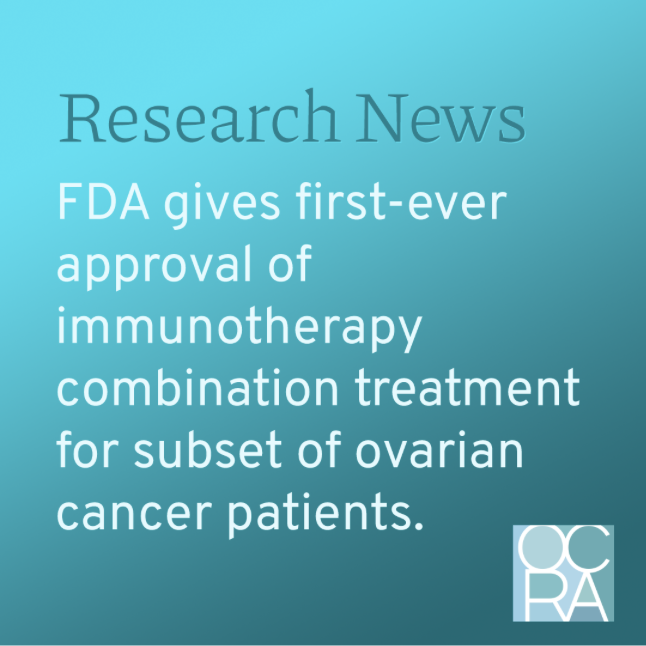
The U.S. Food and Drug Administration (FDA) has approved the first immunotherapy regimen shown to extend survival in a subset of ovarian cancer patients. The FDA authorized Keytruda (pembrolizumab), made by Merck, in combination with chemotherapy, for PD-L1–positive, platinum-resistant epithelial ovarian, fallopian tube, and primary peritoneal cancers. Keytruda plus weekly Taxol (paclitaxel), with or without … Continued

A new study published February 2 in JAMA Network Open provides the clearest evidence to date that opportunistic salpingectomy—the removal of the fallopian tubes during another gynecologic surgery—can dramatically reduce the risk of ovarian cancer. Led by a B.C.-based international collaboration known as the Ovarian Cancer Observatory, the study found that people who underwent opportunistic … Continued
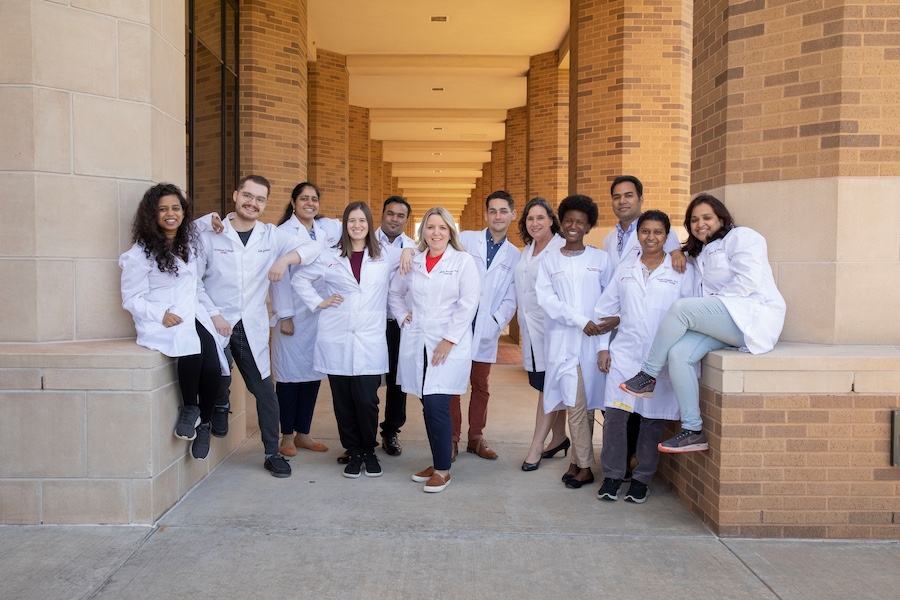
In 2025, Ovarian Cancer Research Alliance (OCRA) invested more than $10.8 million toward scientific research—part of our $14.5 million commitment to strengthen the community through research, patient support, education and advocacy. This year’s investment represents OCRA’s broadest scope to date, encompassing not only our renowned grant programs but also global collaborations leveraging artificial intelligence (AI) … Continued
Get email updates about research news, action alerts, and ways to join the fight.